-
Zelensky, Trump discussed replacement of Ukraine's US ambassador, source says
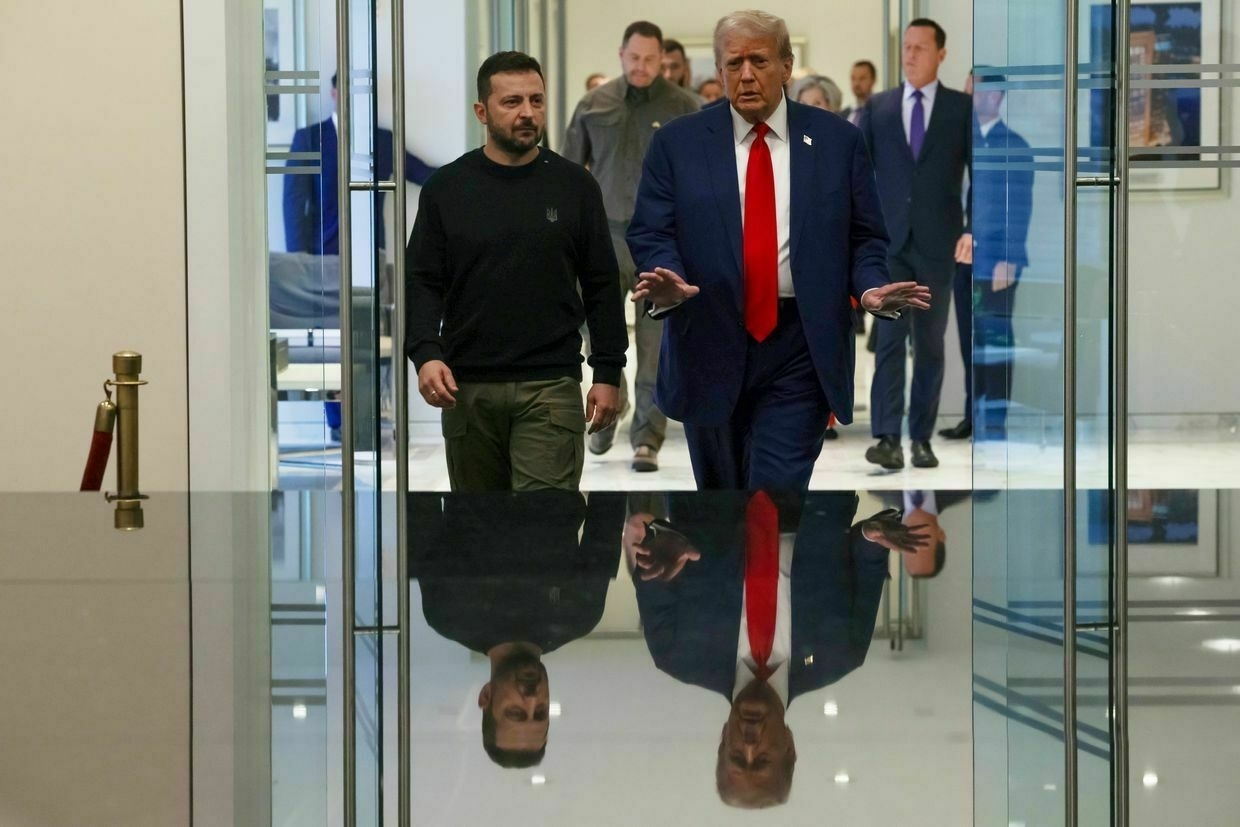
President Volodymyr Zelensky and U.S. President Donald Trump discussed a potential change in Ukraine’s ambassador in Washington during a recent phone call, a source familiar with the conversation told the Kyiv Independent.
Oksana Markarova has held the post since April 2021, and played a central role in coordinating U.S. military and financial support during the early phases of Russia’s full-scale invasion.
According to the source, the topic of replacing her was raised by Kyiv, suggesting the move could be “useful for both sides.” The source added that there are multiple “strong candidates” in the running.
Prime Minister Denys Shmyhal, Deputy Prime Minister Olha Stefanishyna, Defense Minister Rustem Umerov, and Energy Minister Herman Halushchenko are among the candidates, Bloomberg reported.
When contacted by the Kyiv Independent, a spokesperson for Stefanishyna said they “do not comment on rumors."
The possible reshuffle comes at a moment of renewed tension between Kyiv and Washington. The U.S. Defense Department recently paused shipments of critical weapons systems, including Patriot missiles and precision-guided munitions, sparking concern in Kyiv.
The discussion about Ukraine’s representation in Washington also coincides with longstanding speculation about a broader government reshuffle.
Rumors about replacing Shmyhal as prime minister have circulated since last summer. Although Zelensky replaced several officials in September 2024, Shmyhal remained in office.
Halushchenko, one of the potential ambassadorial candidates, has faced criticism in parliament. Lawmakers from the Energy Committee, led by lawmaker Inna Sovsun, introduced a motion to dismiss him in January, citing alleged corruption.
Shmyhal has served as Ukraine’s Prime Minister since March 2020, overseeing national governance during a period marked by reforms and wartime crises. Before his premiership, he held key roles as Ivano-Frankivsk Oblast Governor and Vice Prime Minister.
Stefanishyna is a seasoned Ukrainian diplomat and expert in European integration who has held high-level government roles since 2020. In September 2024, she was appointed Deputy Prime Minister for European and Euro-Atlantic Integration, and Justice Minister.
Umerov is Ukraine’s current Defence Minister, appointed in September 2023. He started his political career as a member of the Parliament for the opposition party Voice (Holos). Umerov played a major role in peace talks with Russia in the early phase of the full-scale war.
The ambassadorial review comes as Kyiv seeks to strengthen its diplomatic ties with Washington.
Zelensky described his July 5 phone call with Trump as “the best conversation in all this time.” The U.S. president echoed the sentiment, calling the exchange “very strategic."
As Ukraine awaits stalled US weapons, Trump says he’s ‘helping a lot’ in war with Russia“I am helping Ukraine. I’m helping it a lot,” U.S. President Donald Trump said when asked in Washington why the U.S. does not support Ukraine as strongly as it supports Israel. The Kyiv IndependentTim Zadorozhnyy
The Kyiv IndependentTim Zadorozhnyy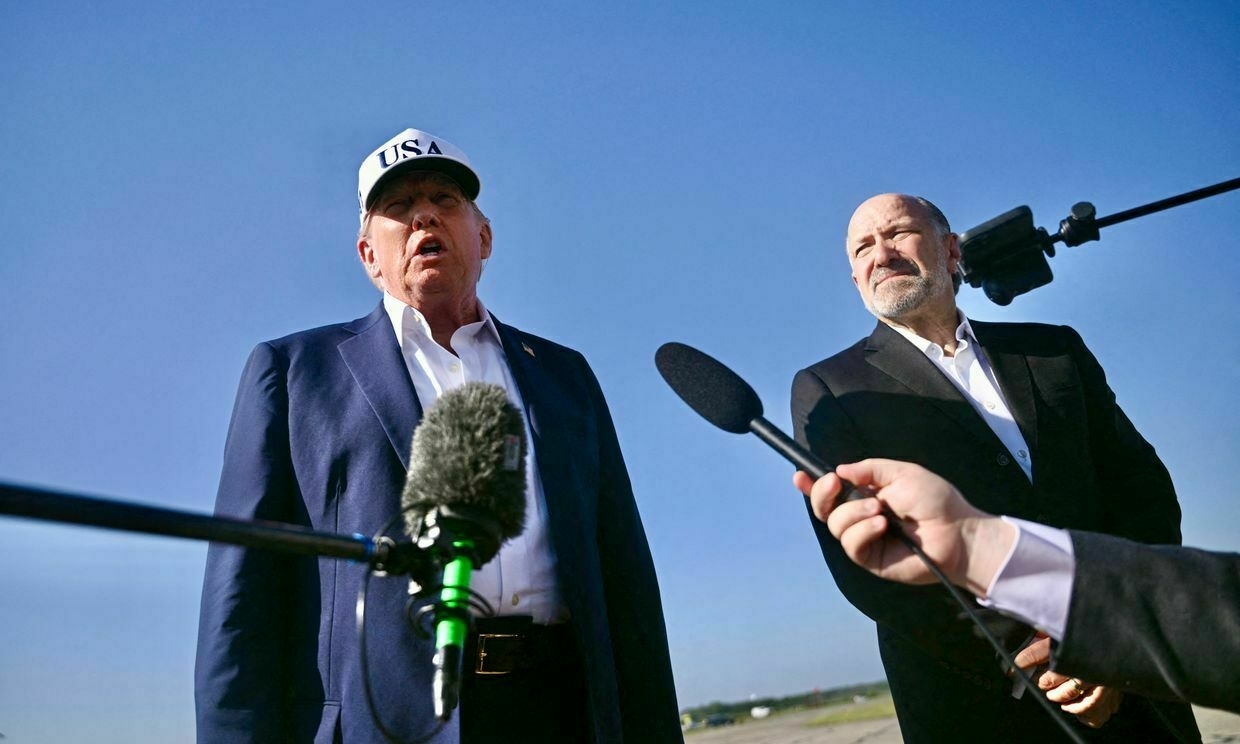
-
12 killed, 69 injured in Russian attacks on Ukraine over past day

At least 12 civilians were killed and 69 others injured in Russian attacks across Ukraine over the past 24 hours, regional authorities reported on July 7.
Ukraine’s Air Force said Russia launched 101 drones overnight, including Iranian-designed Shahed-type attack drones, as well as four S-300/400 guided missiles. Air defenses intercepted 75 drones, while another 17 likely served as radar-jamming decoys.
The drone and missile assault was countered using aviation, electronic warfare, mobile fire teams, and air defense systems, the military said.
The heaviest casualties occurred in Donetsk Oblast, where seven civilians were killed — four in Kostiantynivka, two in Druzhkivka, and one in Novohryhorivka — and 15 others were injured, Governor Vadym Filashkin reported.
In Kharkiv Oblast, 27 people were injured, including three children, according to Governor Oleh Syniehubov. At least three victims remain hospitalized in moderate condition, and the number may rise.
Russian forces also attacked critical and residential infrastructure in Kherson Oblast, killing two civilians and injuring nine, Governor Oleksandr Prokudin said.
Two more civilians were killed in Sumy Oblast in a drone strike, local authorities said. Another person was injured. In Odesa Oblast, one civilian was killed and infrastructure was damaged in an attack on the regional capital, Governor Oleh Kiper reported.
In Zaporizhzhia, at least 12 people were injured in separate attacks throughout the day, including 10 during a drone strike on the city center, Governor Ivan Fedorov said.
Five civilians were injured in Dnipropetrovsk Oblast — two women and three men — in the latest wave of attacks, according to Governor Serhii Lysak.
The mass strikes come amid Russia’s continued rejection of ceasefire proposals and its growing use of aerial assaults to pressure Ukrainian defenses.
Kyiv has repeated its urgent appeals to Western partners to ramp up deliveries of air defense systems to protect civilian areas from drone and missile attacks.
As Ukraine awaits stalled US weapons, Trump says he’s ‘helping a lot’ in war with Russia“I am helping Ukraine. I’m helping it a lot,” U.S. President Donald Trump said when asked in Washington why the U.S. does not support Ukraine as strongly as it supports Israel. The Kyiv IndependentTim Zadorozhnyy
The Kyiv IndependentTim Zadorozhnyy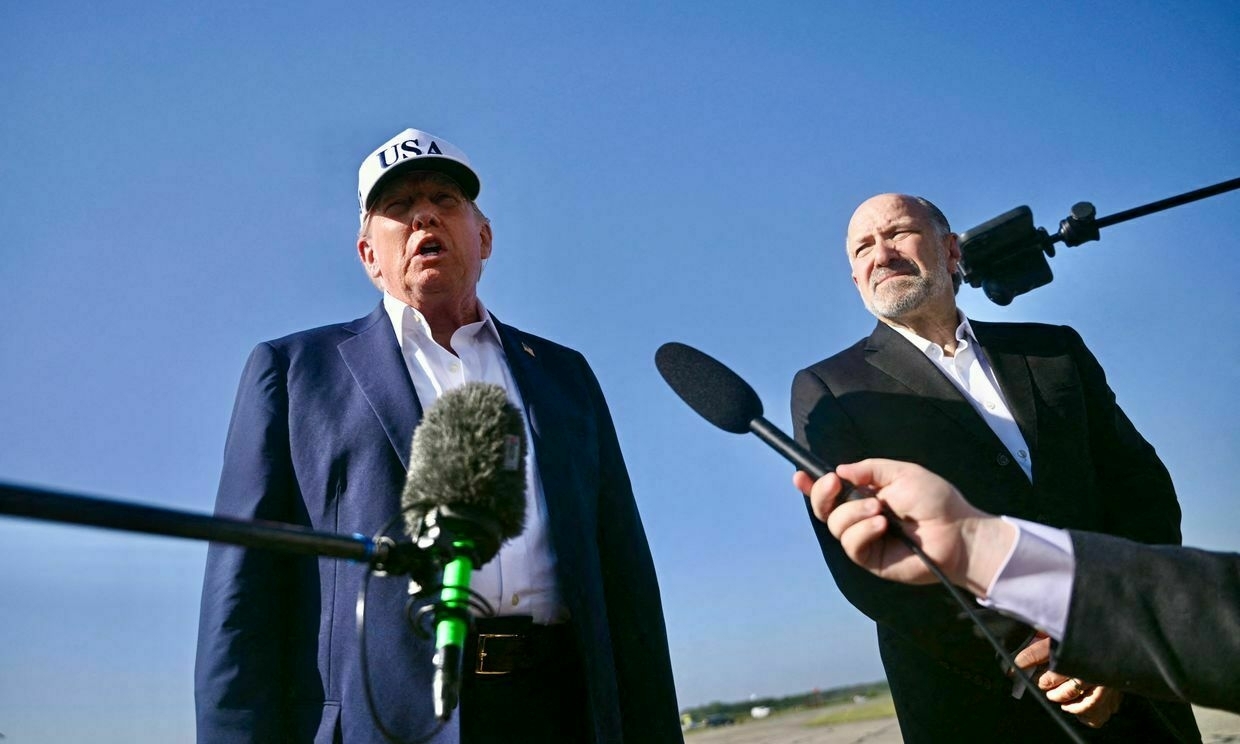
-
As Ukraine awaits stalled US weapons, Trump says he's 'helping a lot' in war with Russia
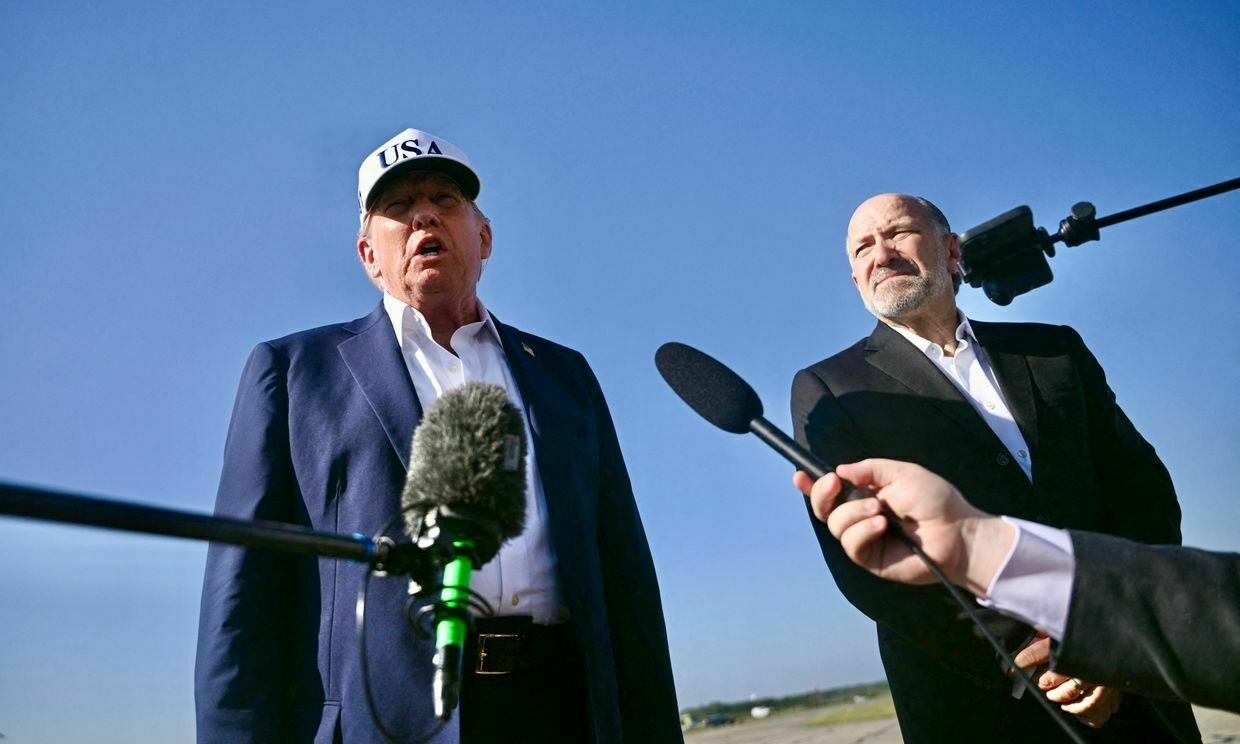
U.S. President Donald Trump said on July 6 that his administration is “helping a lot” when it comes to Ukraine, defending his approach to the ongoing war.
“I am helping Ukraine. I’m helping it a lot,” Trump told reporters when asked in Washington why the U.S. does not support Ukraine as strongly as it supports Israel.
The comment follows a growing outcry in Kyiv over the U.S. Defense Department’s decision to pause deliveries of key weapons, including Patriot air defense missiles and precision-guided munitions.
Ukrainian officials have warned that the delay leaves the country more vulnerable to intensified Russian missile and drone attacks, which have killed and injured hundreds of civilians in recent weeks.
While Trump has repeatedly said he wants to end the war and support Ukraine, his administration has not imposed new sanctions on Russia since he took office in January and has yet to approve additional military assistance packages.
Instead, the Trump administration has prioritized military action in the Middle East. The U.S. launched air strikes on three nuclear sites in Iran on June 21, a move critics say stands in contrast to Washington’s cautious posture toward Moscow.
Speaking on Air Force One on July 5, Trump expressed frustration over his July 3 phone call with Russian President Vladimir Putin.
“It just seems like he wants to go all the way and just keep killing people,” Trump said.
Trump also spoke with President Volodymyr Zelensky on July 4 in what the U.S. president later described as a “very strategic” call. Trump said the two discussed Ukraine’s urgent need for air defenses.
“They’re going to need something because they’re being hit pretty hard,” Trump said, adding that supplying Patriot systems was a possibility.
Despite those comments, there have been no new authorizations for weapons deliveries, and Trump’s administration has continued to avoid direct economic pressure on Moscow.
Two rounds of direct talks between Russia and Ukraine held in Istanbul in May and June led only to prisoner exchanges, with no breakthrough on ending hostilities. Moscow has maintained maximalist conditions while rejecting calls for an unconditional ceasefire.
Ukraine war latest: Drones attack Russia’s Black Sea Fleet; Russian pipelines explode in country’s Far East, HUR saysKey developments on July 5-6: * Drones reportedly attack Russia’s Black Sea fleet * Pipelines supplying Russian military explode in Russia’s Far East, HUR source says * Ukrainian drone strike on Russian airfield hits bomb depot, aircraft * Ukraine hits Russian electronic warfare facility making Shahed, Iskander components, General Staff says * Ukraine’s army chief warns of new Russian offensives in northeast as he visits Kharkiv Oblast front Drones attacked Russia’s Black Sea Fleet at the The Kyiv IndependentThe Kyiv Independent news desk
The Kyiv IndependentThe Kyiv Independent news desk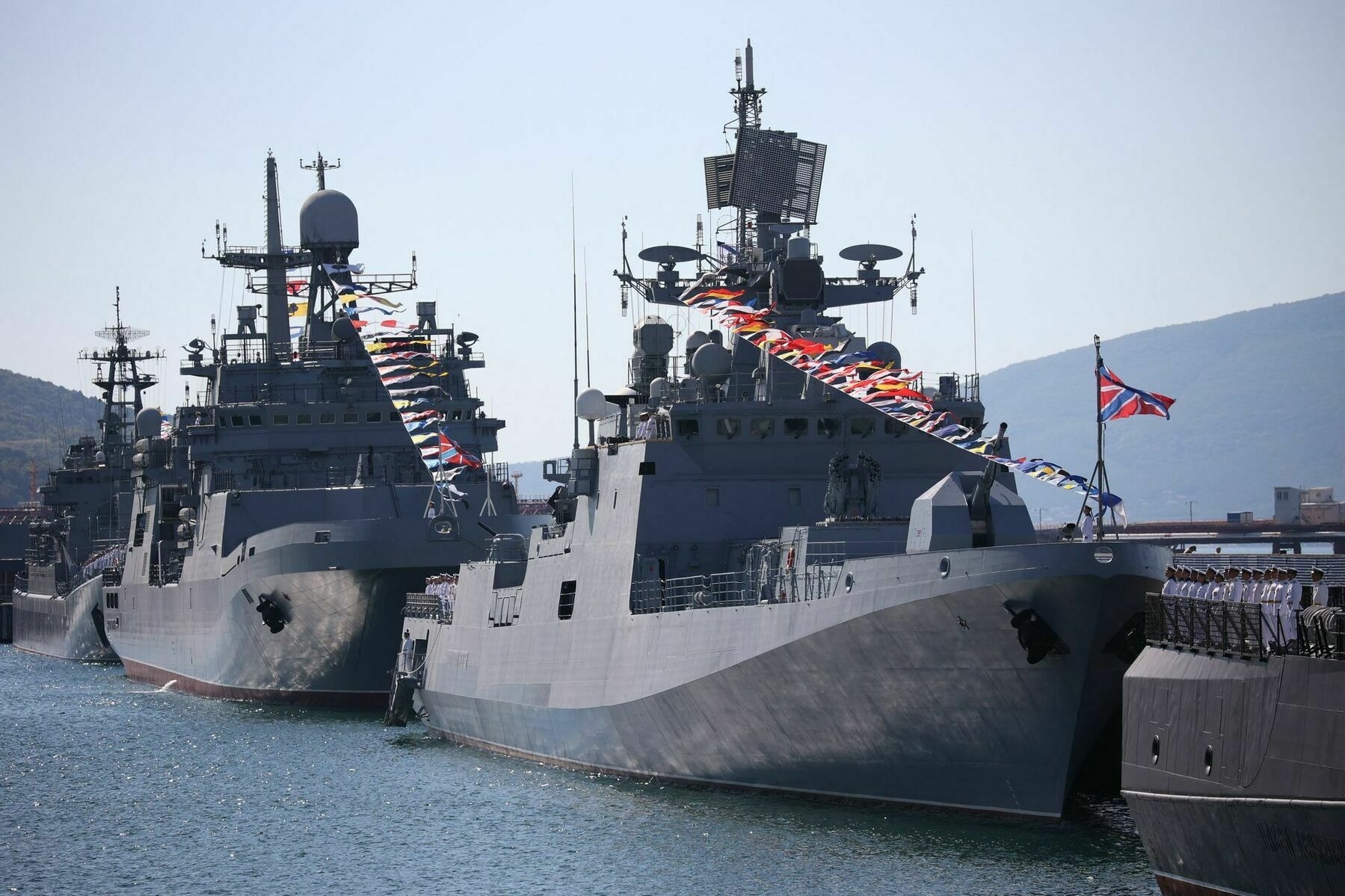
-
Trump threatens 10% tariff on countries backing BRICS 'anti-American policy'
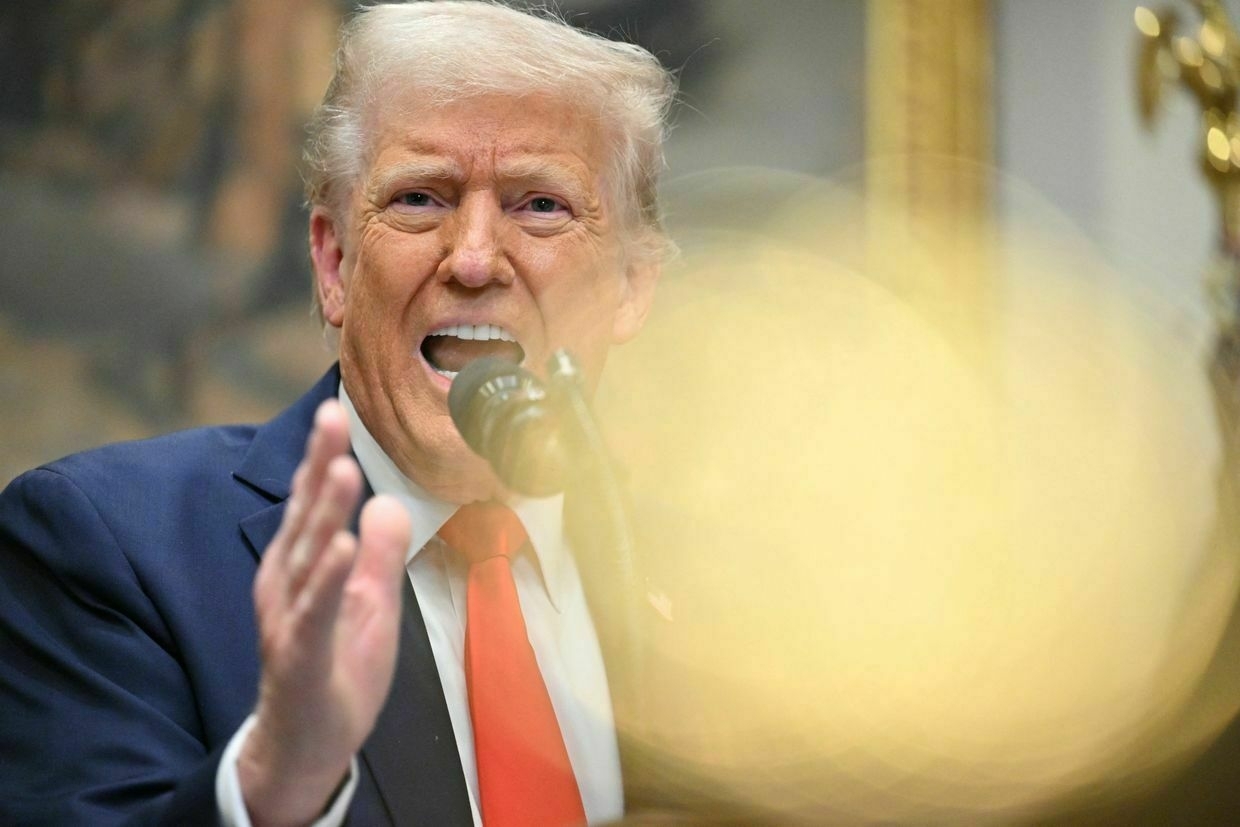
U.S. President Donald Trump said on July 6 that his administration will impose an additional 10% tariff on countries aligning themselves with what he described as the BRICS group’s “anti-American policy."
“There will be no exceptions to this policy,” Trump wrote on the social network Truth Social.
The announcement coincided with the BRICS summit in Brazil, where member states, including Russia, China, and India, adopted a declaration condemning strikes on Iran and Israel’s operations in Gaza.
The document did not explicitly name the U.S. but criticized actions perceived as destabilizing. On June 21, the country carried out strikes on three major Iranian nuclear sites: Fordow, Natanz, and Isfahan.
Trump’s latest trade threat escalates tensions with the BRICS group, which has increasingly sought to reduce dependence on the U.S. dollar and shift toward a multipolar world order.
Kirill Dmitriev, head of Russia’s sovereign wealth fund, described the summit as the start of a new “Global South” era, highlighting the group’s aim to reshape the global order.
Though Russian President Vladimir Putin said in October 2024 that there are no immediate plans to create a BRICS currency, he highlighted the group’s goal of financial sovereignty.
In January, Trump warned of 100% tariffs on BRICS members if they attempt to adopt a new or existing currency to replace the U.S. dollar in international trade.
Russian Foreign Minister Sergey Lavrov attended the BRICS summit in person, while Putin participated via video due to an outstanding International Criminal Court (ICC) warrant. Brazil, the summit’s host, is an ICC member and obligated to arrest Putin if he enters the country.
The declaration also condemned incidents on Russian railway infrastructure and called for a negotiated settlement in the war against Ukraine. However, it avoided urging Russia to halt its full-scale invasion.
BRICS expanded in 2024, admitting Egypt, Ethiopia, Iran, and the United Arab Emirates as new members. In October 2024, Putin hosted a BRICS forum in Kazan, attended by 36 world leaders.
Russian airports cancel nearly 300 flights amid drone attacks on RussiaRosaviatsia reported on the evening of July 6 that 287 flights had been grounded across three major airports: Moscow’s Sheremetyevo, St. Petersburg’s Pulkovo, and Strigino Airport in Nizhny Novgorod. The Kyiv IndependentOlena Goncharova
The Kyiv IndependentOlena Goncharova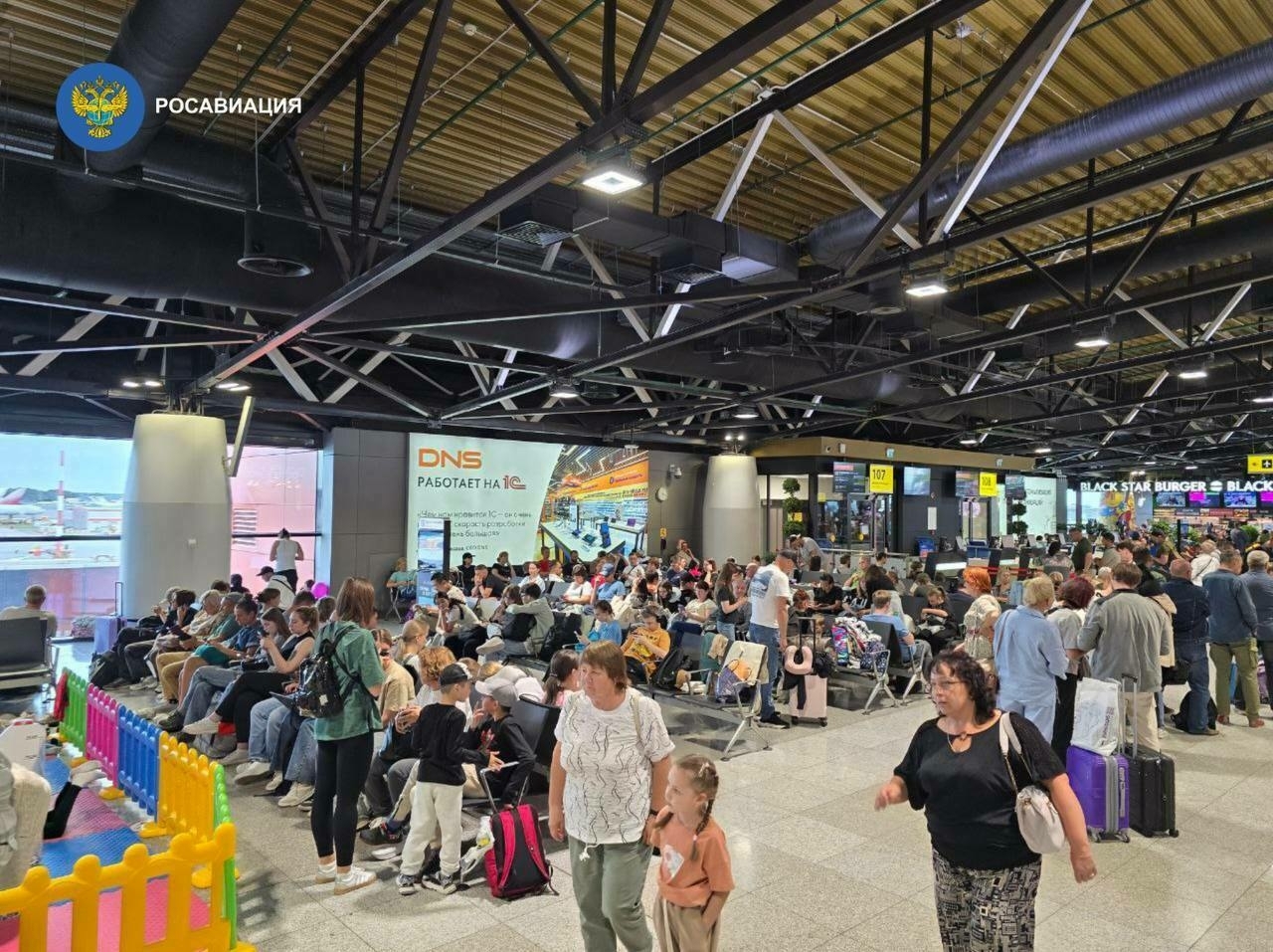
-
Trump slams Musk’s third party plan as ‘ridiculous,’ calls Musk ‘train wreck’
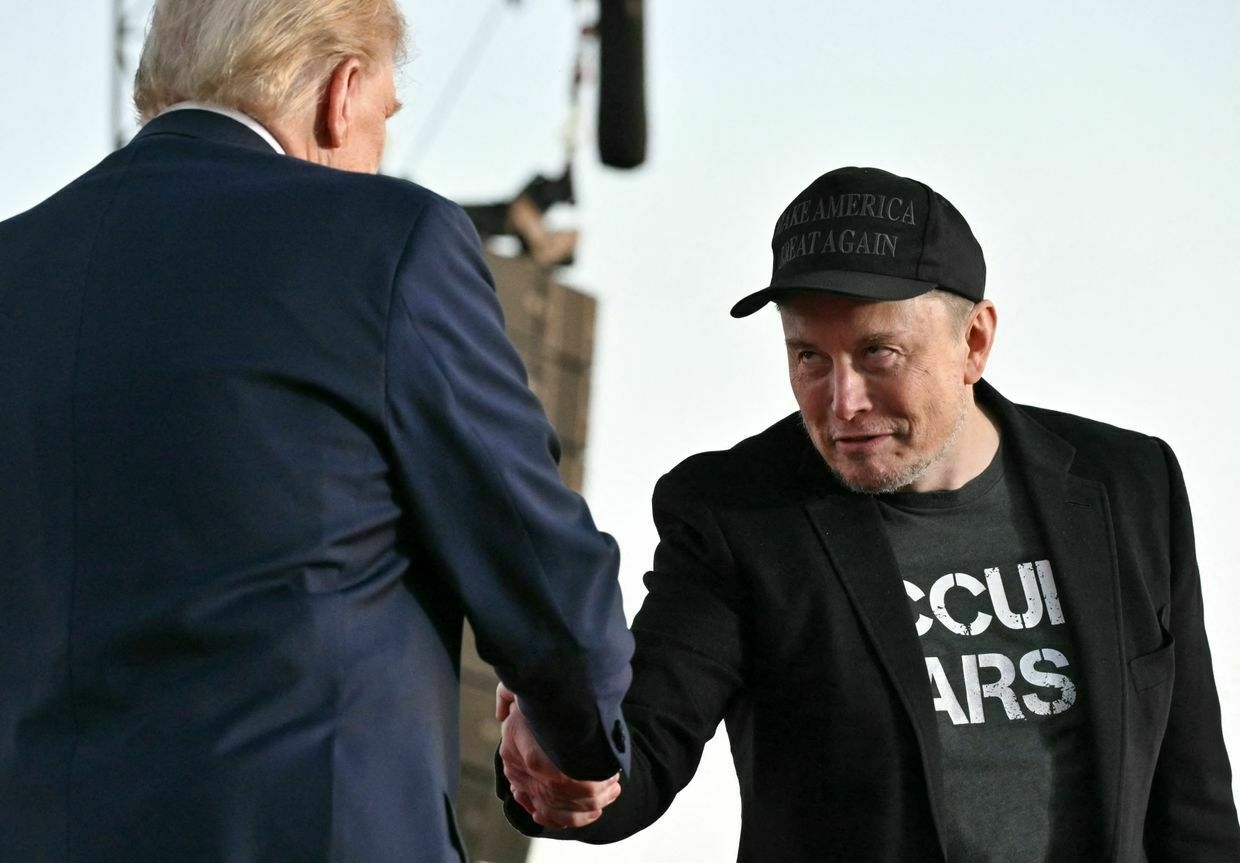
U.S. President Donald Trump on July 6 commented on tech billionaire Elon Musk’s plan to create a new political party, calling it “ridiculous” and warning that third-party movements have historically failed in the United States.
“I think creating a third party is ridiculous… we’ve had tremendous success with the Republican Party,” Trump told reporters on July 6 before boarding Air Force One in Morristown. “The Democrats have lost their way, but it’s always been a two-party system, and I think creating a third party just adds to the confusion.”These comments came after Musk unveiled plans on July 5 to launch a new political force in the U.S. called the “America Party.”
Musk said the party’s goal is to “give you back your freedom” and offer an alternative to the entrenched Republican and Democratic systems, a few weeks after a public split with Trump.
The strained relationship between Musk and Trump began to deteriorate significantly after a period where Musk publicly supported Trump’s re-election bid and held a high-profile role in the U.S. government’s Department of Government Efficiency (DOGE).
Musk’s new party announcement followed Trump signing a major tax and spending bill into law, the One Big Beautiful Bill Act, legislation that Musk had strongly criticized.
Trump later commented further in a Truth Social post, saying that third parties bring “complete and total disruption and chaos” and criticizing Musk.
“I am saddened to watch Elon Musk go completely ‘off the rails,’ essentially becoming a TRAIN WRECK over the past five weeks,” Trump wrote.Trump also linked Musk’s political shift to his frustration over the recently passed Republican bill eliminating the federal electric vehicle mandate.
“It is a Great Bill but, unfortunately for Elon, it eliminates the ridiculous Electric Vehicle (EV) Mandate, which would have forced everyone to buy an Electric Car in a short period of time. I have been strongly opposed to that from the very beginning,” Trump added.Musk led DOGE until May 30 and had been a key figure in dismantling U.S. foreign aid institutions, including USAID, which delivered billions in aid to Ukraine.
Musk launches ‘America Party’ following public feud with TrumpThe announcement came a day after Trump signed his sweeping tax cut and spending bill into law, a legislative act that Musk has fiercely opposed. The Kyiv IndependentOlena Goncharova
The Kyiv IndependentOlena Goncharova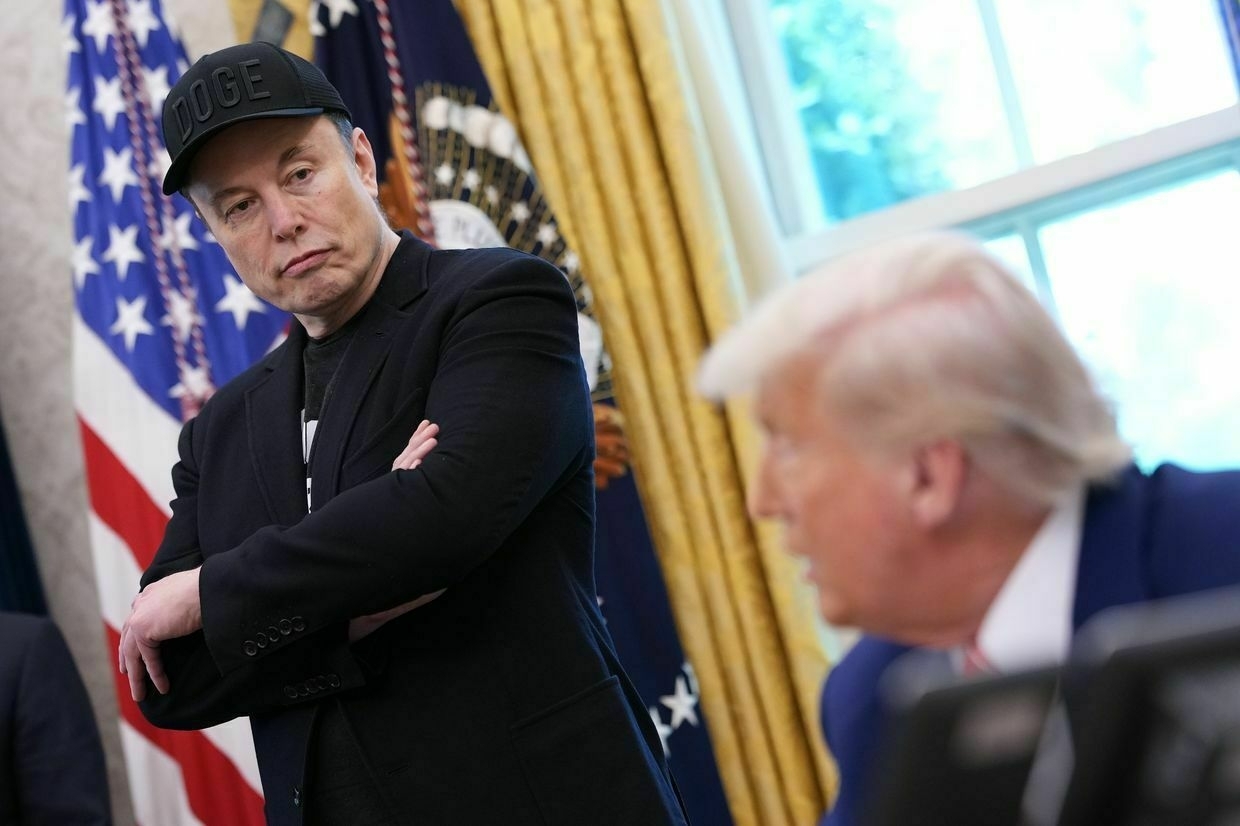
-
BRICS summit statement condemns attacks on Russian railways, avoids urging Russia to cease war efforts in Ukraine
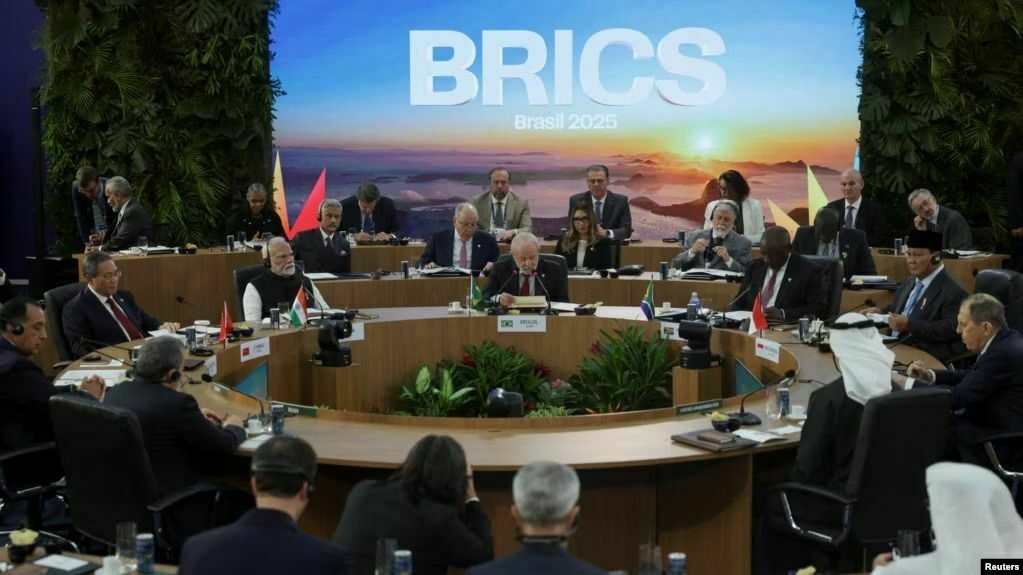
BRICS summit participants condemned recent attacks on Russia’s railway infrastructure, according to a joint declaration on July 6 from Rio de Janeiro.
“We condemn in the strongest possible terms the attacks on bridges and railway infrastructure deliberately targeting civilians in the Bryansk, Kursk and Voronezh regions of the Russian Federation on May 31, and June 1 and 5 2025, which resulted in the deaths of several civilians, including children,” the document says.
Bryansk, Kursk, and Voronezh oblasts are all located near Ukraine’s northeastern border and have played a central role in Russia’s war effort, serving as key logistical hubs and launch sites for missile and drone attacks on Ukrainian cities–often targeting civilian infrastructure and causing casualties.
In their declaration, BRICS leaders also called for a negotiated peace agreement between Russia and Ukraine.
“We recall our national positions concerning the conflict in Ukraine as expressed in the appropriate forum, including the UN Security Council and the UN General Assembly,” the document said. “We expect that current efforts will lead to a sustainable peace settlement.”
The statement comes a few days after a phone call between U.S. President Donald Trump and Russian President Vladimir Putin on July 3, in which Putin said “Russia will continue to pursue its goals” in the war against Ukraine, Kremlin aide Yury Ushakov said.
Russian Foreign Minister Sergey Lavrov attended the summit in person, while Russian President Vladimir Putin participated via video link.
Brazil is a member of the ICC and a signatory to the Rome Statute, meaning it is obliged to arrest Putin if he enters the country.
The ICC issued a warrant for the Russian leader’s arrest in March 2023 over the illegal deportation of Ukrainian children during Russia’s full-scale invasion of Ukraine.
The BRICS declaration also condemned recent U.S. and Israeli airstrikes on Iranian nuclear facilities as violations of international law and criticized the presence of foreign forces in Syria and Gaza, calling for Israeli withdrawal from Syrian territory.
BRICS, originally composed of Brazil, Russia, India, China, and South Africa, has expanded in recent years to include Iran, Egypt, the UAE, Ethiopia, and Indonesia.
Lavrov meets Iranian counterpart Abbas Araqchi at BRICS summit, reiterates Russia’s offer to mediate disputes over nuclear programRussia reiterated its offer to mediate the conflict over Iran’s nuclear program during a meeting between Foreign Minister Sergey Lavrov and his Iranian counterpart at the BRICS summit in Rio de Janeiro, Reuters reported on July 6. The Kyiv IndependentSonya Bandouil
The Kyiv IndependentSonya Bandouil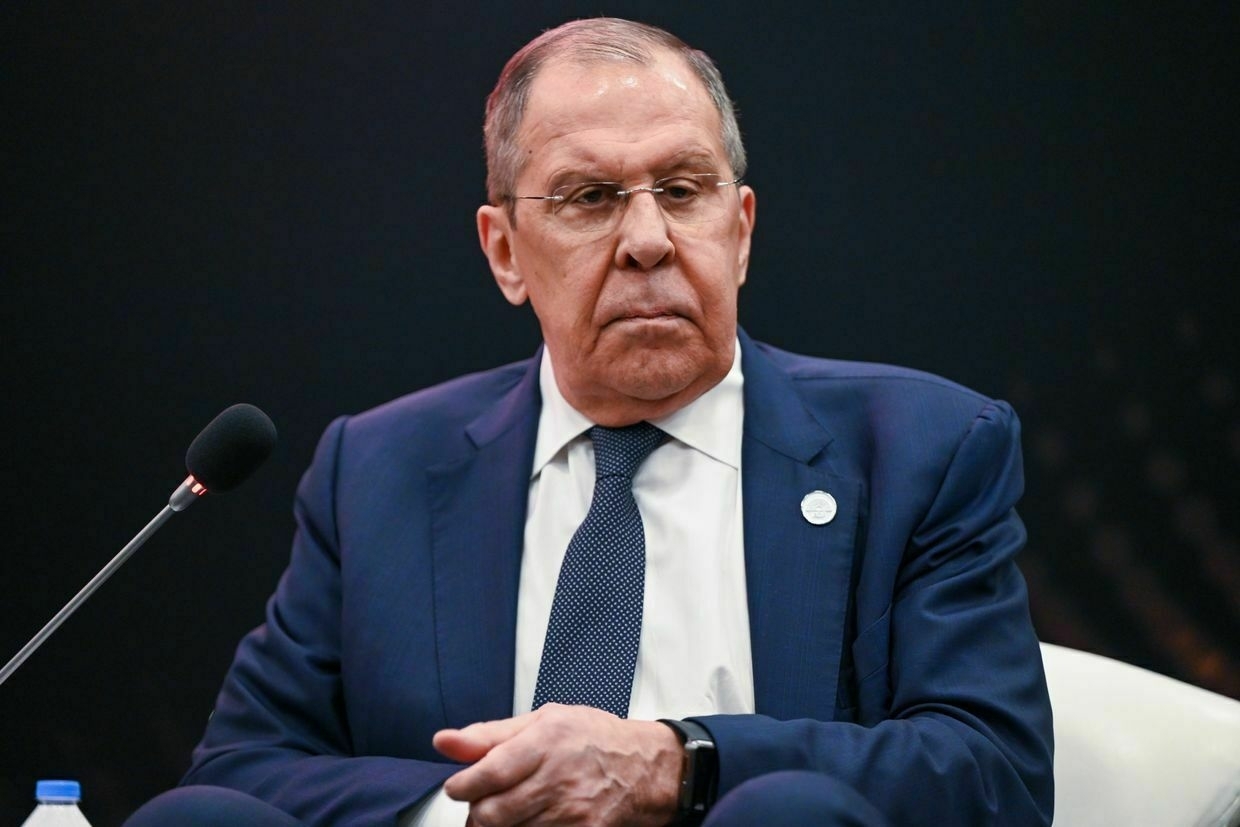
-
Zelensky's top adviser behind bid to replace prime minister, spy chief, sources tell Economist
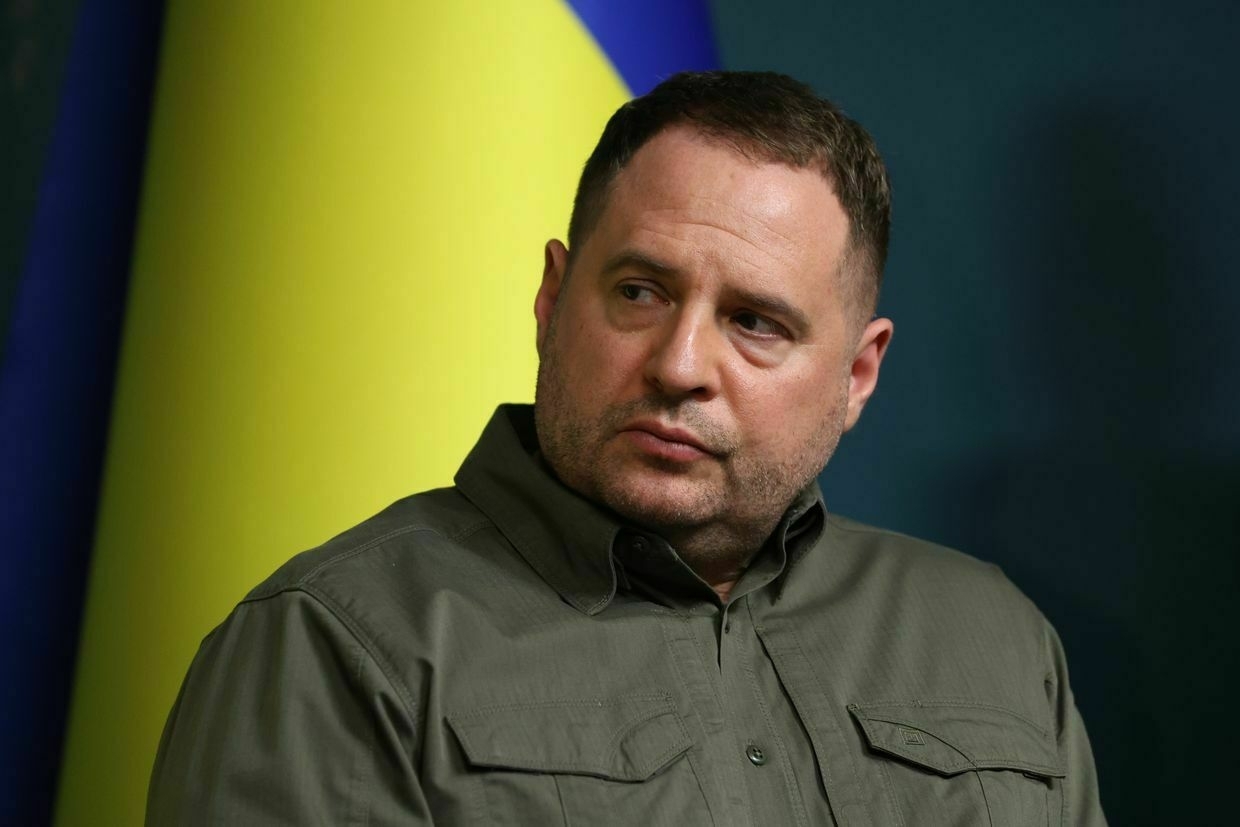
Andriy Yermak, head of Ukraine’s Presidential Office, has been leading campaigns to supplant three top officials in the Ukrainian government, the Economist reported on July 6, citing multiple anonymous officials.
The story follows a corruption probe into Deputy Prime Minister Oleksii Chernyshov, the highest-ranking official in Ukrainian history to face such charges while still in office. According to the Economist’s sources, Yermak was a driving force behind the investigation.
Yermak, President Volodymyr Zelensky’s close friend and chief adviser, spurred on the Chernyshov probe while also renewing attempts to replace Kyrylo Budanov, head of Ukraine’s military intelligence agency (HUR) , and Prime Ministery Denys Shmyhal, three unnamed officials told the Economist.
There is no evidence that Yermak ordered an investigation into Chernyshov, the Economist reports, but officials told the outlet that he influenced the case by allowing it to progress while freezing other investigations.
Chernyshov ran afoul of Yermak by offering himself as an alternative liaison to Washington, the officials claimed. His removal would also reportedly clear the way for Deputy Prime Minister Yuliia Svyrydenko, a Yermak protege, to assume the role of Prime Minister in the event of Shmyhal’s dismissal.
Rumors of a government reshuffle unseating Shmyhal have circulated for months. Ukrainian media reported last summer that Zelensky was considering replacing the prime minister with Svyrydenko. While several key officials were replaced in a reshuffle in September 2024, Shmyhal kept his post.
Chernyshov, too, has said he will not step down from his role as deputy prime minister despite the ongoing corruption probe.
Reports of imminent dismissal have also periodically surrounded Budanov, Ukraine’s spy chief. Budanov has rejected such rumors as “Russian propaganda” in the past.
Sources told the Economist that Yermak was leading another effort to oust Budanov in June 2025. According to the outlet, warnings from the White House not to fire Budanov may have helped secure his position.
Politico reported in June that U.S. officials, particularly those working in the Trump administration, found Yermak’s diplomatic style abrasive and off-putting, potentially risking U.S.-Ukrainian relations at a critical time.
Ukraine imposes sanctions on Russian financial, cryptocurrency schemesRestrictions were imposed on 60 legal entities and 73 Russian citizens.The Kyiv IndependentKateryna Hodunova
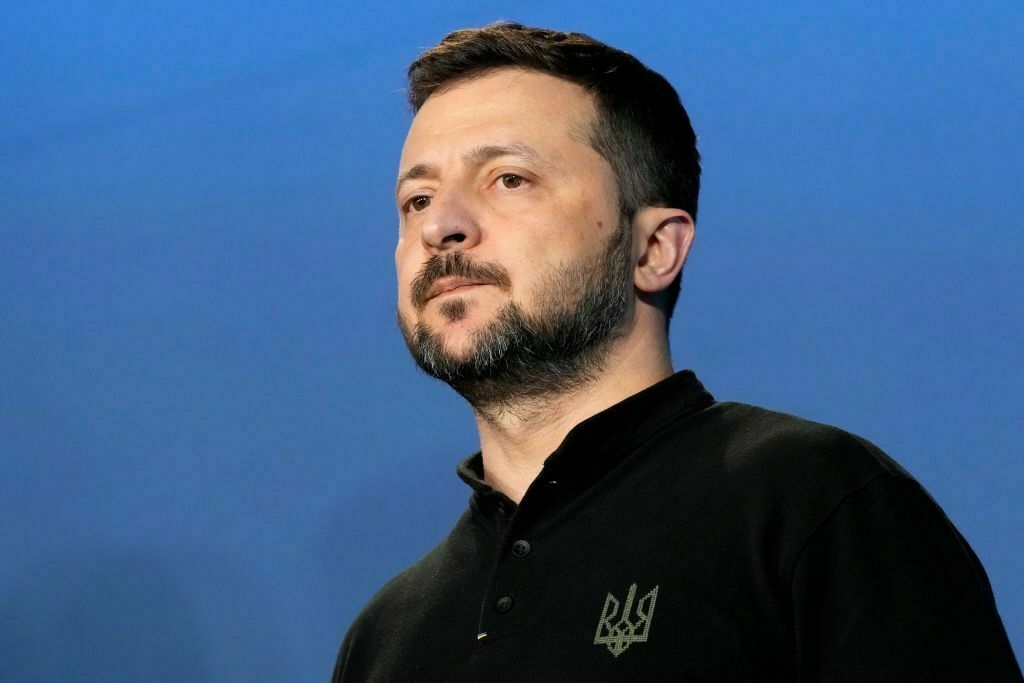
-
Ukraine war latest: Drones attack Russia's Black Sea Fleet; Russian pipelines explode in country's Far East, HUR says
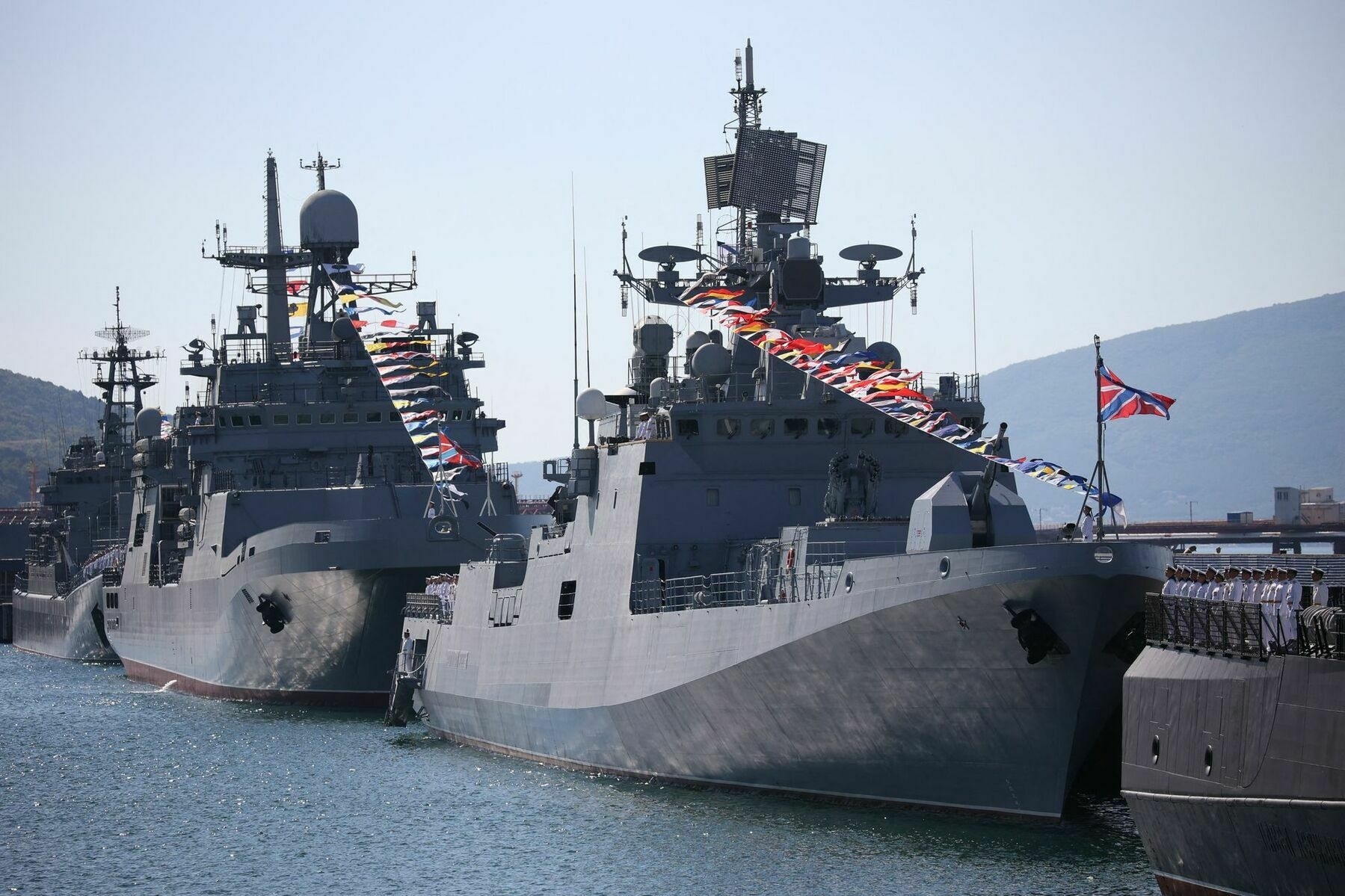
Key developments on July 5-6:
- Drones reportedly attack Russia’s Black Sea fleet
- Pipelines supplying Russian military explode in Russia’s Far East, HUR source says
- Ukrainian drone strike on Russian airfield hits bomb depot, aircraft
- Ukraine hits Russian electronic warfare facility making Shahed, Iskander components, General Staff says
- Ukraine’s army chief warns of new Russian offensives in northeast as he visits Kharkiv Oblast front
Drones attacked Russia’s Black Sea Fleet at the port of Novorossiysk in Krasnodar Krai overnight on July 6, the Russian media outlet Astra reported.
Ukraine has not officially commented on the reported strikes, and the Kyiv Independent could not independently verify the claims.
An air alert was sounded in the city for several hours, and air defense was active. The consequences of the attack are still being determined, according to Astra.
The media outlet also published footage purportedly showing a burning maritime drone that was allegedly shot down during the attack.
Krasnodar Krai is located east of Crimea, with the Kerch Strait separating them at their closest point.
Ukraine regularly strikes military targets within Russia as Moscow continues to wage its war against Ukraine.
Trump says Putin ‘wants to keep killing people,’ signals US may send Patriots to Ukraine“It just seems like he wants to go all the way and just keep killing people. It’s not good,” U.S. President Donald Trump said. The Kyiv IndependentTim Zadorozhnyy
The Kyiv IndependentTim Zadorozhnyy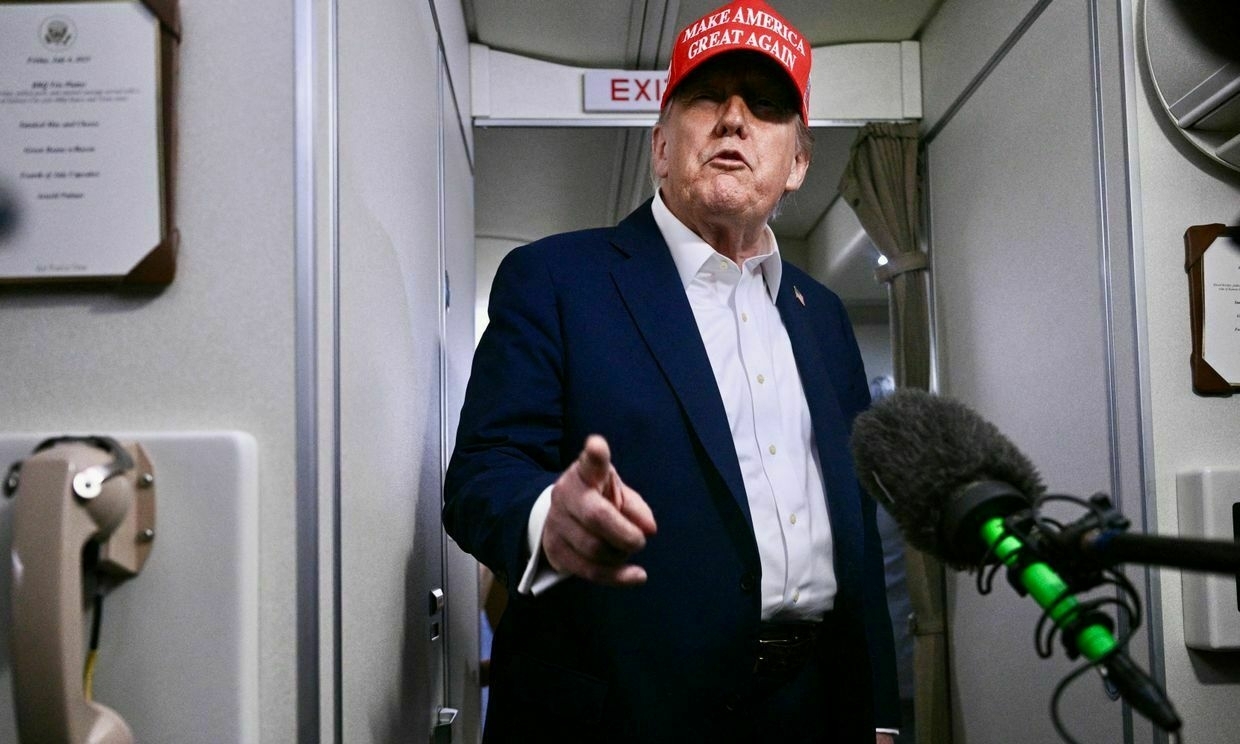
Pipelines supplying Russian military explode in Russia’s Far East, HUR source saysExplosions in Russia’s Vladivostok damaged a gas pipeline and destroyed a water pipeline that supplied military facilities in the area, a source in Ukraine’s military intelligence (HUR) told the Kyiv Independent on July 5.
A fire followed the explosions and destroyed sections of the Vladivostok gas pipeline along the Sea of Japan, the source said.
The blasts occurred early on July 5, between 1-2 a.m., with Russian special services and repair teams arriving shortly after.
The damaged pipeline provides gas to several Russian military facilities on the coast of the Sea of Japan, including the 155th Marine Brigade of the Pacific Fleet of the Russian Armed Forces, the source told the Kyiv Independent.
The water pipeline destroyed in the explosion provided drinking water to military garrisons in the area.
“In order to hide information from the local population… local special services turned off mobile Internet and communications in the area,” the source added.
The Kyiv Independent could not independently verify the claims.
Ukrainian drone strike on Russian airfield hits bomb depot, aircraftUkraine targeted the Borisoglebsk airfield in Russia’s Voronezh Oblast overnight on July 5, damaging a warehouse with guided bombs, aircraft, and other military assets, Ukraine’s General Staff reported.
The airfield hosts Su-34, Su-35S, and Su-30SM jets thatRussia regularly uses in air strikes against Ukraine, according to the military. The strike may have destroyed a training and combat aircraft, with further assessments underway.
The NASA Fire Information for Resource Management System (FIRMS) detected a fire near the Borisoglebsk military airfield shortly after the strike. Residents in the area reported 8–10 powerful explosions around 2 a.m. local time, according to Russian independent outlet Astra.
The strike was part of a broader overnight drone campaign across Russia, with explosions and fires reported in at least six regions.
The Russian Defense Ministry said 42 drones were intercepted within a three-hour period, most of them over Belgorod, Bryansk, and Kursk oblasts, which border Ukraine.
Leningrad Oblast Governor Alexander Drozdenko said two drones were downed south of St. Petersburg, prompting a temporary suspension of flights at Pulkovo airport. No casualties or damage were reported.
The governor of Smolensk Oblast in western Russia said anti-aircraft units downed three drones without casualties or damage. The governor of Voronezh Oblast, bordering Ukraine, also confirmed the destruction of several drones.
Explosions were also heard overnight in Cheboksary, the capital of the Chuvash Republic, where video footage shared online showed a fire reportedly at a local industrial site.
Additionally, explosions were heard during the night in Engels, Saratov Oblast, with some Telegram channels suggesting a military airfield was likely targeted.
The attacks come as Russia escalates aerial assaults on Ukraine, prompting Kyiv to increase long-range drone strikes on Russian military targets.
Ukrainian officials say these drone operations aim to undermine Russia’s strike capabilities and bring the war closer to those enabling the Kremlin’s campaign.
China may ask Russia to attack NATO if Taiwan is invaded, Rutte saysFears of escalating Chinese military intervention in Taiwan have risen sharply since Russia launched its full-scale invasion of Ukraine in February 2022. The Kyiv IndependentKateryna Hodunova
The Kyiv IndependentKateryna Hodunova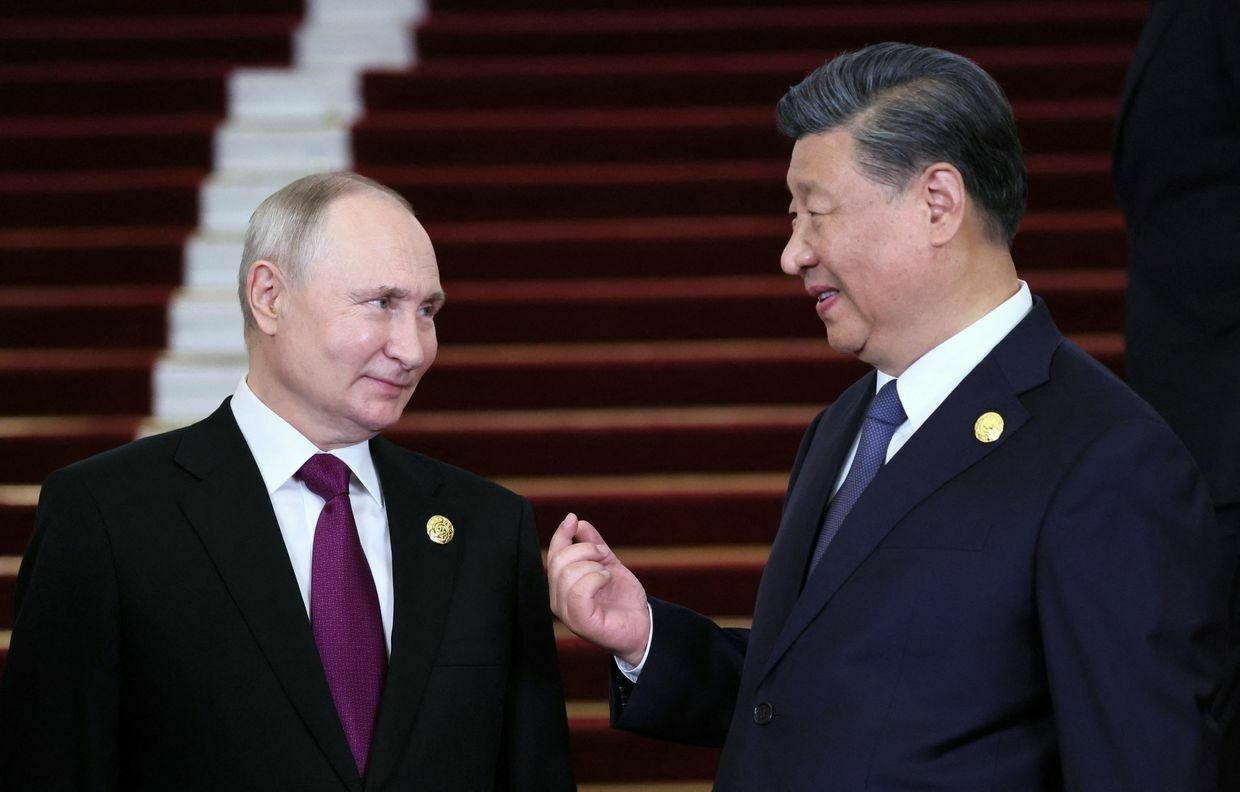
Ukraine’s army chief warns of new Russian offensives in northeast as he visits Kharkiv Oblast frontOleksandr Syrskyi, commander-in-chief of Ukraine’s Armed Forces, said on July 5 that he had visited the front line in Kharkiv Oblast, warning of a growing threat of renewed Russian offensives in northeastern Ukraine.
According to Syrskyi, Russian troops are ramping up attacks in the sector using large numbers of personnel. Over the past week, Ukrainian troops have repelled more than 60 Russian assaults in the area, with “about a dozen battles continuing to rage every day,” Syrskyi said.
“Russian forces are trying to overwhelm us with quantity, but we must be vigilant and apply effective tactical and technological solutions to prevent the invaders from advancing,” he said in a Telegram post.
Syrskyi said he had reviewed battlefield situation in the area, identifying unit needs, and issuing updated tactical orders.
Syrskyi said he was coordinating closely with Joint Forces Commander Major General Mykhailo Drapatyi.
Kharkiv Oblast, located in northeastern Ukraine, borders Russia and includes the country’s second-largest city. It has been a frequent target of Russian assaults and missile attacks since the full-scale invasion began in February 2022.
Since Ukraine’s successful counteroffensive in the northeast in the fall of 2022, Russia has occupied less than 5% of Kharkiv Oblast, along the region’s eastern edge.
In spring 2024, Russian forces opened a new front in the north of Kharkiv Oblast, near the town of Vovchansk, but were pushed back by Ukrainian troops.
The Ukrainian battlefield monitoring platform DeepState reported on July 4 that Russian forces had advanced up to 3 kilometers (1.86 miles) into Kharkiv Oblast near the border village of Milove, opening yet another front in the northeast.
Kremlin’s war economy shows cracks as military spending boom fadesThe slowdown indicates that Western sanctions, though not a knockout blow, are increasingly damaging the Russian economy. The Kyiv IndependentOlena Goncharova
The Kyiv IndependentOlena Goncharova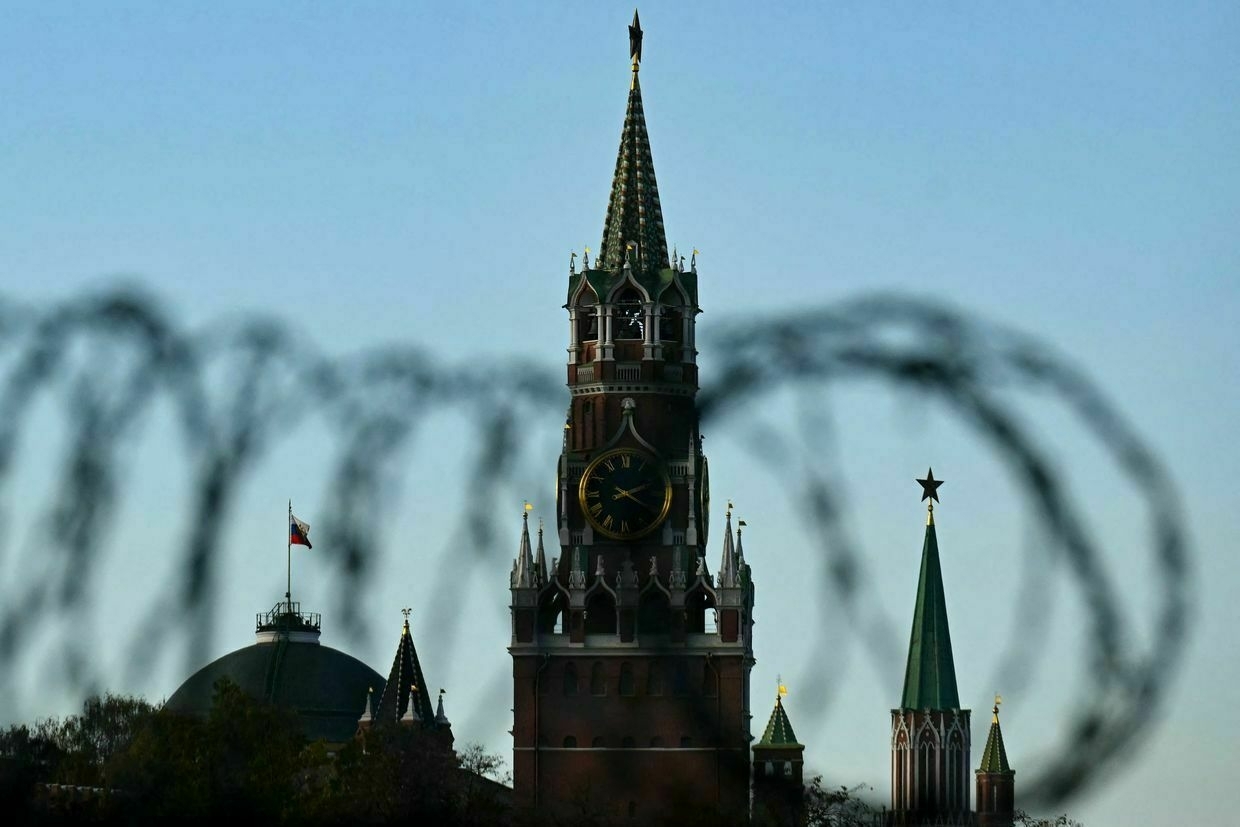
Ukraine hits Russian electronic warfare facility making Shahed, Iskander components, General Staff saysUkraine struck a critical Russian military-industrial site overnight on July 5 that produces components for high-precision weapons used by Moscow to attack Ukraine, the General Staff of Ukraine’s Armed Forces reported.
The site in question is JSC VNIIR-Progress, a Russian state institute that specializes in developing electronic warfare (EW) systems, including the Kometa antenna arrays, used to jam satellite, radio, and radar signals.
The institute is located in Cheboksary, Chuvash Republic, about 1,200 kilometers (745 miles) away from the Ukrainian border.
The Kometa antenna is used in Shahed-type drones, Iskander-K cruise missiles, and guided aerial bomb modules — all high-precision weapons used by Russia to strike civilian and military targets across Ukraine.
The General Staff confirmed that Ukrainian weapons reached the target area but said final damage assessments were still underway.
The VNIIR-Progress institute has been sanctioned by both the United States and the European Union for its role in supporting Russia’s war effort.
The Iskander-K is a precision-guided cruise missile with a range of up to 500 kilometers (311 miles), frequently used by Russia to target civilian areas. Shahed drones have become a central part of Moscow’s airstrike tactics since late 2022 due to their low cost and high payload.
Located on the Volga River, Cheboksary is the capital of the Chuvash Republic and lies deep inside Russian territory. Astra and local Russian Telegram channels earlier reported explosions in the city overnight.
Russia’s Defense Ministry claimed to have shot down two drones over the region.
This marks the second known Ukrainian drone strike on VNIIR-Progress. On June 9, explosions and fires were also reported at the facility following another drone attack.
Note from the author:
Ukraine War Latest is put together by the Kyiv Independent news desk team, who keep you informed 24 hours a day, seven days a week. If you value our work and want to ensure we have the resources to continue, join the Kyiv Independent community.
Death of top Russian oil executive fuels fresh scrutiny of elite’s ‘window falls’The unexplained death of a top Russian oil executive on July 4 is fueling renewed scrutiny over the rising number of high-profile Russian officials and businessmen who have died under mysterious circumstances, specifically, have fallen out of windows. Andrei Badalov, vice president of Transneft, Russia’s largest state-controlled pipeline transport company,The Kyiv IndependentTim Zadorozhnyy
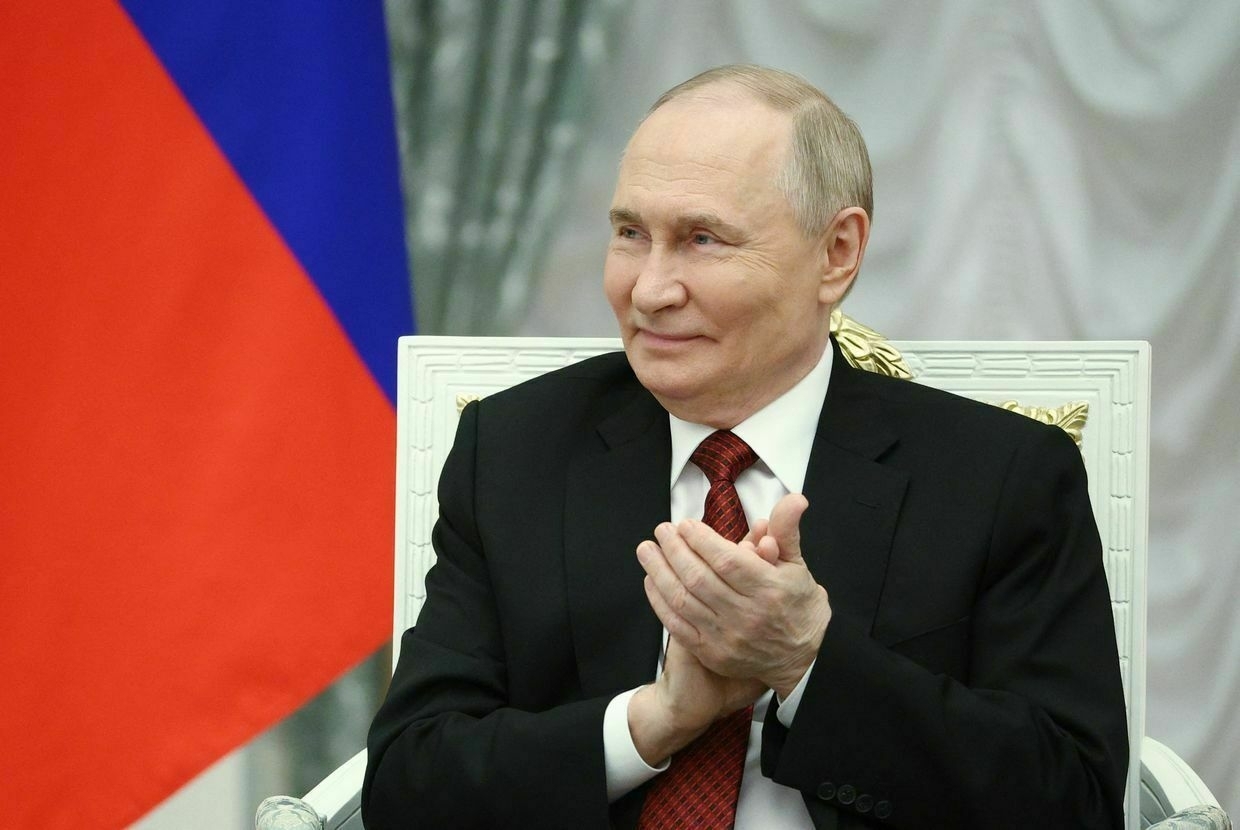
-
Bus сarrying Ukrainian сhildren сrashes in Hungary, 21 injured
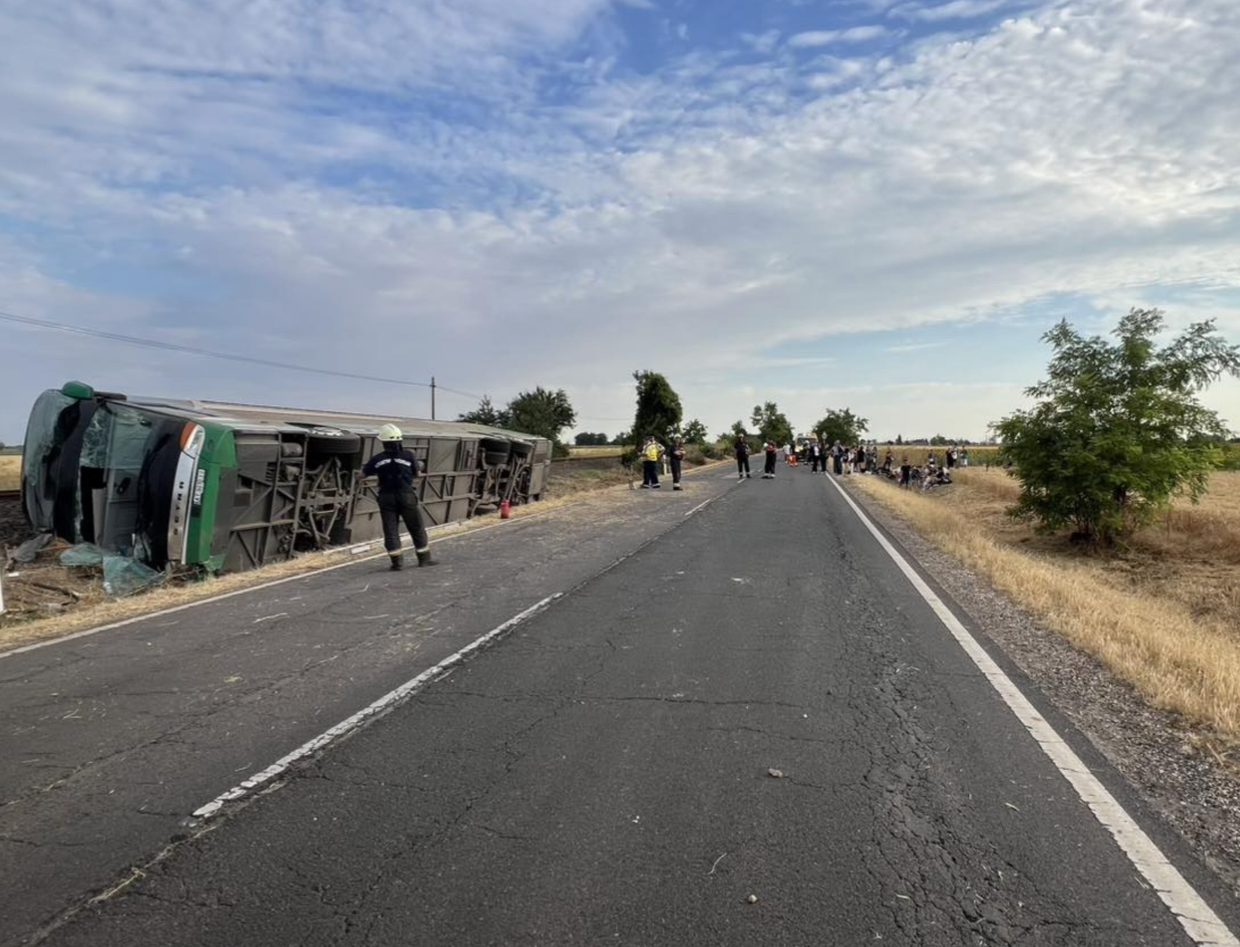
Editor’s Note: This story has been updated with additional details from Ukraine’s Foreign Ministry.
A bus carrying Ukrainian children veered off the road and overturned on a Hungarian highway on July 6, leaving 21 people injured, Ukraine’s embassy in Hungary reported.
The accident occurred at around 5 a.m. local time between the settlements of Kunszentmarton and Tiszafoldvar. According to preliminary information, the driver lost control of the bus and veered off the road into a ditch. Further details as to the cause of the crash have not yet been determined.
The bus was carrying a children’s ensemble from the Ukrainian city of Lviv to Ohrid in North Macedonia for a dance festival. There were 77 people aboard at the time of the accident, including two drivers, chaperones, and ensemble members.
Twenty-one people were injured, with four of them reported to be in serious condition. Two of the seriously injured victims are teenagers (ages 14 and 18) while the other two are adults (ages 67 and 71). Four more children suffered moderate injuries, while the remaining victims suffered minor injuries.
No one was killed, according to the embassy’s statement.
The victims were transferred to hospitals in the towns of Szolnok, Kecskemetre, and Szentes.
Rescuers are working at the crash site, along with Ukrainian Ambassador Fegyir Sandor and consuls assisting Ukrainian citizens.
The rest of the passengers are staying temporarily at the Kunszentmarton Cultural Center, where they have been provided food and a place to rest. Those suffering moderate and mild injuries will join the main group at this location.
The bus carrier is reportedly taking measures to prevent additional accidents.
Ukraine war latest: Russia pounds Kyiv with record overnight drone, missile attack, 1 dead, 26 injuredKey developments on July 4: * ‘Nothing but terror and murder’ — Russia pounds Kyiv with record overnight drone, missile attack, 1 dead, 26 injured * Zelensky, Trump discuss air defense, joint drone production amid Russian strikes * ‘There is also good news’ — Ukrainian drones hit key military optics plant in Russia, General StaffThe Kyiv IndependentThe Kyiv Independent news desk
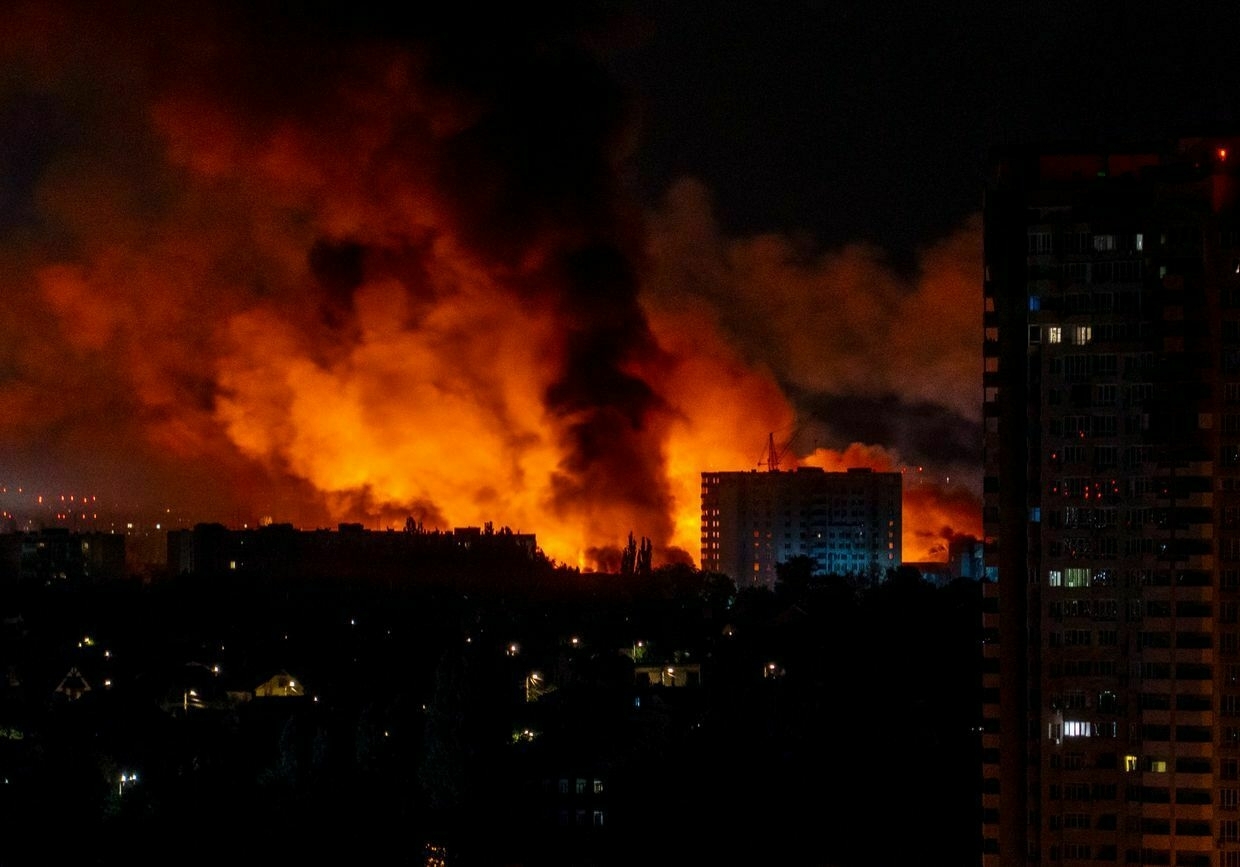
-
The Russification of America
How the 2025 Budget Shattered the Last Illusions of Democracy
-
China may ask Russia to attack NATO if Taiwan is invaded, Rutte says
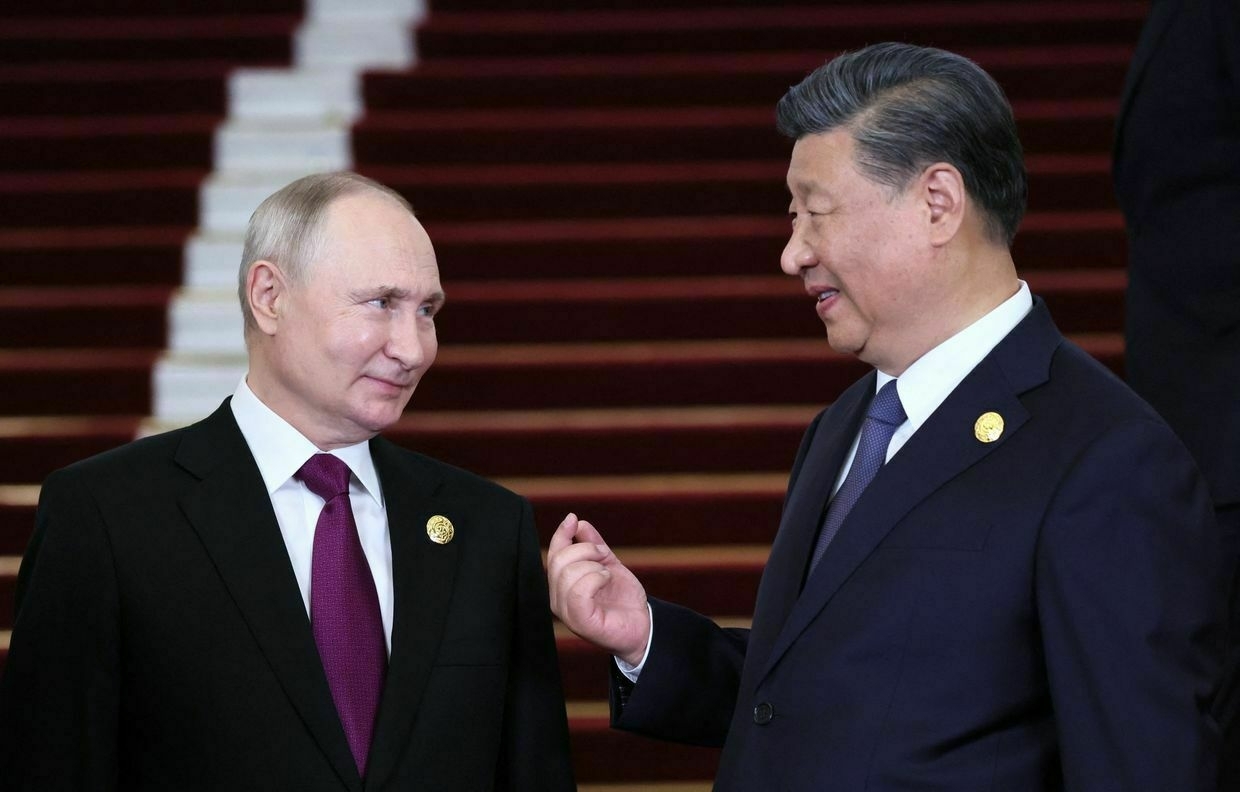
If China attacks Taiwan, Beijing may ask Moscow to open a second front against NATO states, NATO Secretary General Mark Rutte said in an interview with The New York Times (NYT) published on July 5.
Fears of escalating Chinese military intervention in Taiwan have risen sharply since Russia launched its full-scale invasion of Ukraine in February 2022. The war has served as a possible model of how both Taipei and the international community might respond if Beijing decides to invade.
“There’s an increasing realization, and let’s not be naive about this: If Xi Jinping would attack Taiwan, he would first make sure that he makes a call to his very junior partner in all of this, Vladimir Vladimirovich Putin, residing in Moscow, and telling him, ‘Hey, I’m going to do this, and I need you to keep them busy in Europe by attacking NATO territory,'” Rutte said.
“That is most likely the way this will progress. And to deter them, we need to do two things. One is that NATO, collectively, being so strong that the Russians will never do this. And second, working together with the Indo-Pacific — something President (Donald) Trump is very much promoting,” Rutte added.
Western officials and analysts point to Russia’s surging military expenditures amid its ongoing full-scale invasion of Ukraine.
In 2024, Russia’s defense budget reportedly rose 42% in real terms, reaching $462 billion, surpassing the combined spending of all European nations, according to the International Institute for Strategic Studies.
NATO allies have cited Russia’s military buildup, sabotage campaigns, and continued aggression against Ukraine as reasons to accelerate defense investments.
Rutte previously warned that Russia could rebuild its military capacity to threaten NATO territory within five years, urging members to act with urgency.
Taiwan’s FM: ‘If Russia can do that to Ukraine, China might do the same to Taiwan’The start of Russia’s full-scale war against Ukraine was a wake-up call for Taiwan, with the island nation believed to be the next conflict zone in case of Kyiv’s defeat. Two years in, Taiwanese Foreign Minister Joseph Wu still believes that the island’s future is dependentThe Kyiv IndependentAsami Terajima
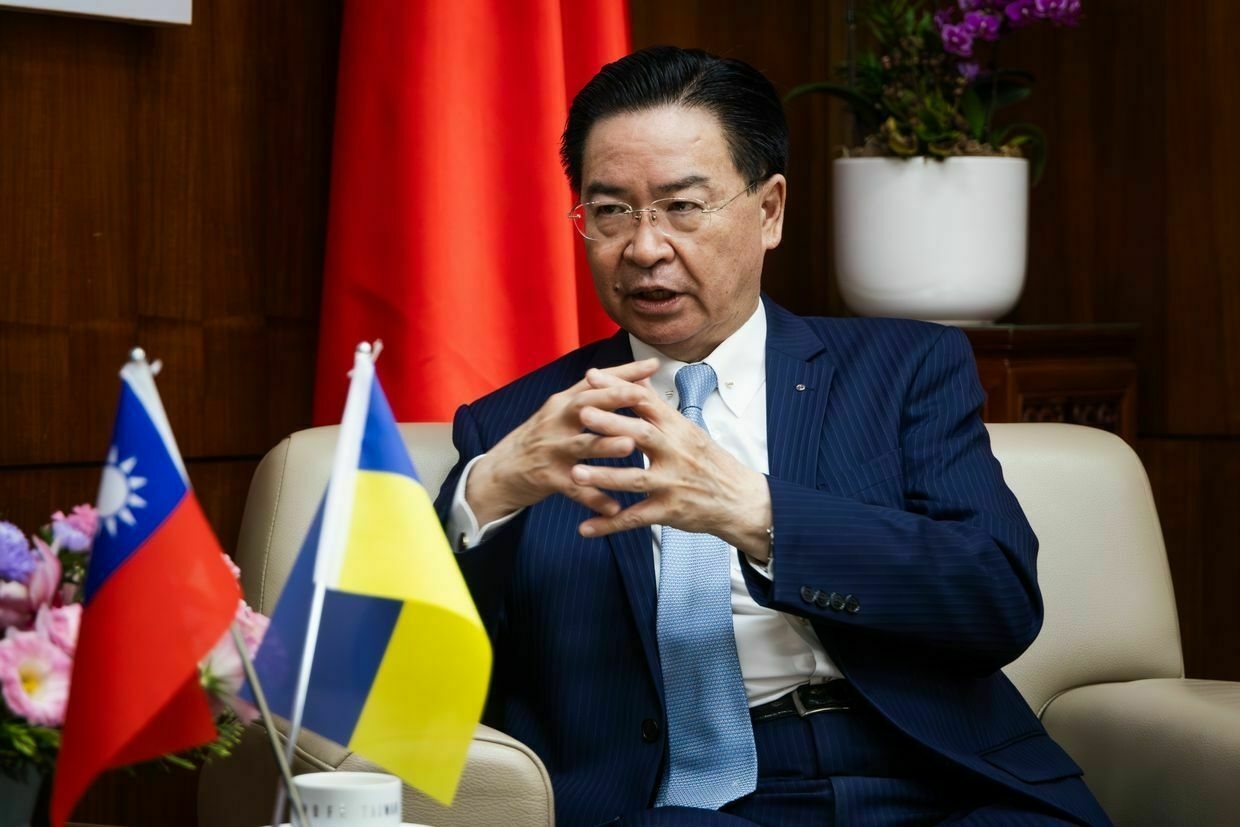
-
Musk launches 'America Party' following public feud with Trump
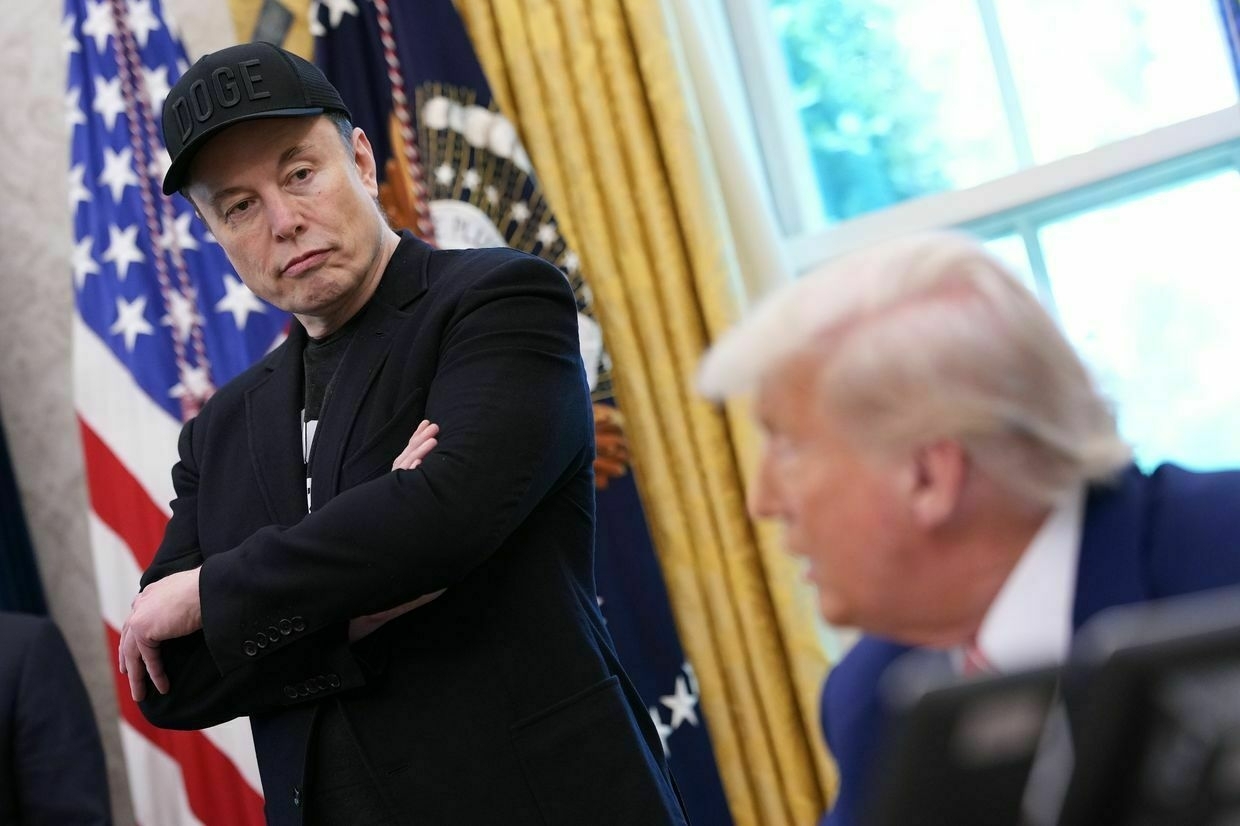
Weeks after a high-profile public falling out with U.S. President Donald Trump, tech mogul Elon Musk announced the creation of a new political party in the United States, dubbed the “America Party.”
Musk said on July 5 that the party’s aim is to “give you back your freedom” and challenge the traditional two-party Republican and Democratic system.
The announcement came a day after Trump signed his sweeping tax cut and spending bill into law, a legislative act that Musk has fiercely opposed. It remains unclear if the America Party has been formally registered with election authorities, but Musk indicated it would launch “next year."
Musk’s decision follows a poll he conducted on X on July 4, asking his followers if he should create a new political party.He cited the overwhelming support, writing: “By a factor of 2 to 1, you want a new political party and you shall have it! When it comes to bankrupting our country with waste & graft, we live in a one-party system, not a democracy."
The strained relationship between Musk and Trump began to deteriorate significantly after a period where Musk publicly supported Trump’s re-election bid and held a high-profile role in the U.S. government’s Department of Government Efficiency (DOGE).
In May, Musk announced his departure from DOGE, citing the end of his “scheduled time.” Initially, Trump praised him as “one of the greatest business leaders and innovators the world has ever produced."
However, tensions escalated sharply on May 22 after the U.S. House of Representatives passed the “One Big Beautiful Bill Act,” a significant tax-cut and spending bill that Trump signed into law on Friday.
Musk vehemently condemned the legislation, calling it a “massive, outrageous, pork-filled Congressional spending bill is a disgusting abomination.” He argued that the bill’s spending would exacerbate the “already gigantic budget deficit” and “burden American citizens with crushingly unsustainable debt."
Adding to the friction earlier this week, Trump threatened to cut off billions of dollars in federal subsidies to Musk’s companies and even hinted at the possibility of deporting the South Africa-born entrepreneur.
‘Disingenuous’ Hegseth paused Ukraine weapons despite Pentagon finding aid wouldn’t hurt US readiness, NBC reportsA senior military review had concluded that while some munitions stockpiles, including precision weapons, were low, they had not fallen below critical thresholds, according to NBC. Still, U.S. Defense Secretary Pete Hegseth opted to stop the shipment. This is reportedly his third such move since February. The Kyiv IndependentAnna Fratsyvir
The Kyiv IndependentAnna Fratsyvir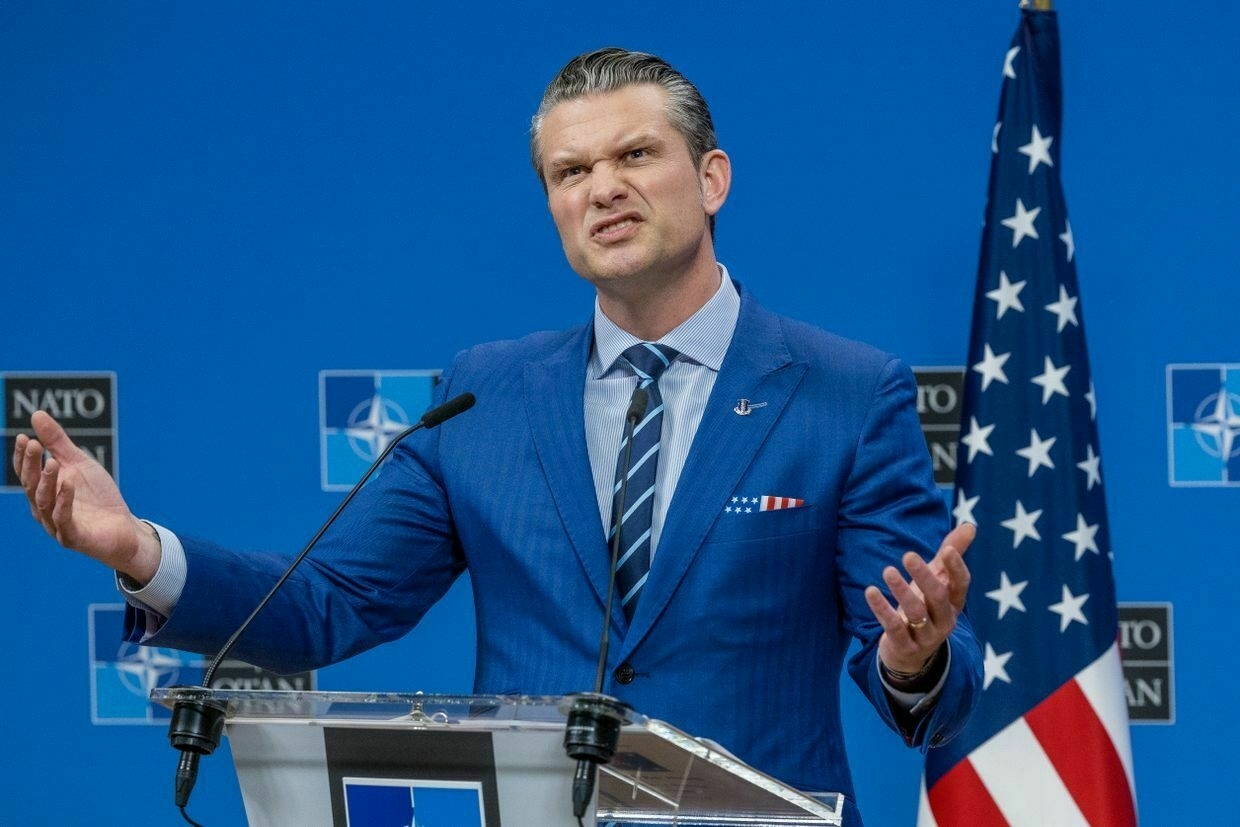
-
Russian airports cancel flights amid drone attacks on Russia
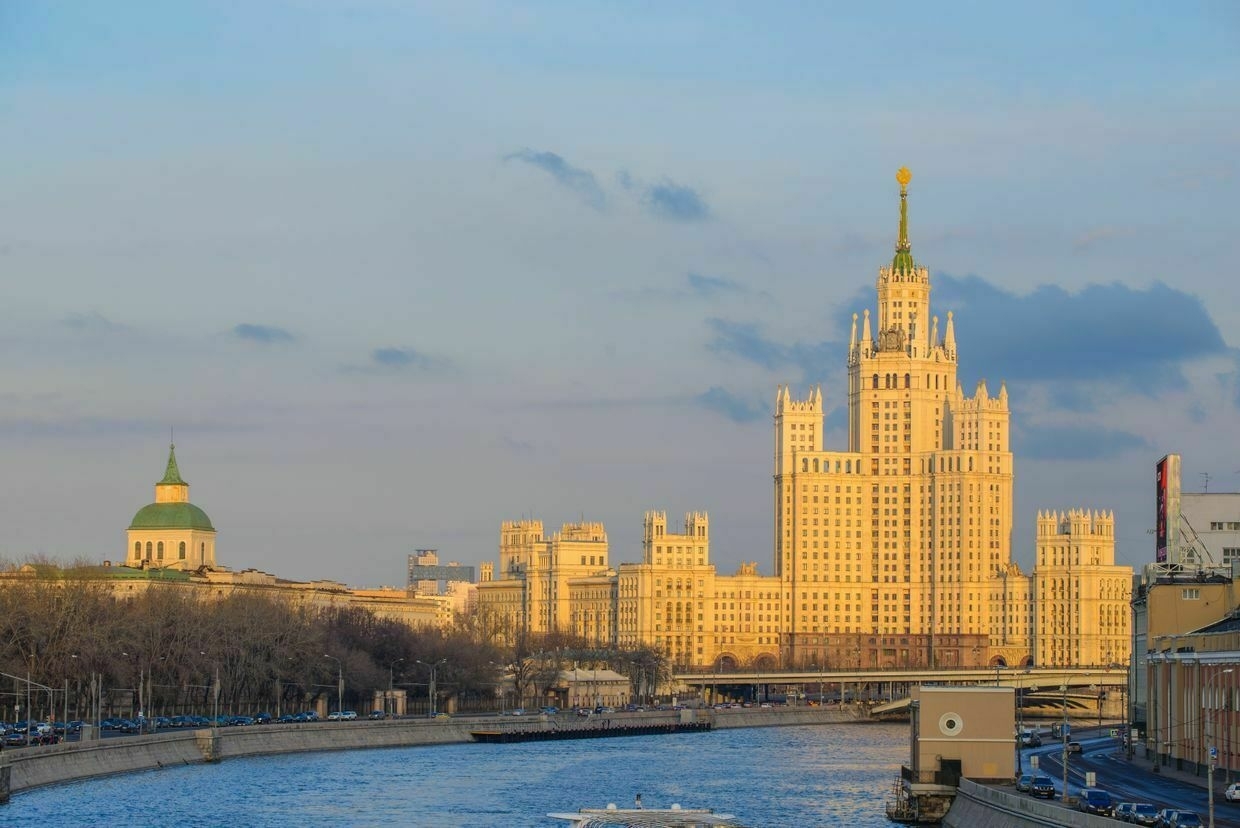
Editor’s note: The story was updated with new reports about operations at Russian airports during drone strikes.
Several Russian airports have canceled flights due to the safety concerns over Ukrainian drone attacks on Russian cities, Russia’s Rosaviatsia aviation authority reported on July 6.
Russia’s Defense Ministry claimed that it had intercepted 120 drones on Russian territory overnight between July 5 and July 6.
Ukraine hasn’t commented on the report. Kyiv’s drone campaign, which has increasingly disrupted civilian air travel in Russia, is part of Ukraine’s broader strategy to undermine Russia’s logistics far beyond the front line.
Rosaviatsia confirmed the temporary pause in flights at Moscow’s Sheremetyevo airport, citing airspace restrictions over the capital and strong winds. At Sheremetyevo, 174 flights were canceled and 47 more were delayed, causing crowds of passengers to form at the airport.
Rosaviatsia also noted that flights at other Russian airports, including St. Petersburg’s Pulkovo, were temporarily halted due to safety concerns. Flight delays and cancellations were also announced at Strigino Airport in Nizhny Novgorod and in Kaluga.
The Kyiv Independent couldn’t immediately verify these claims.
This latest drone attack on Moscow follows an earlier Ukrainian operation targeting the Borisoglebsk airfield in Russia's Voronezh Oblast overnight on July 5.
Ukraine's General Staff reported that the strike damaged a warehouse containing guided bombs, aircraft, and other military assets.
The Borisoglebsk airfield is known to host Su-34, Su-35S, and Su-30SM jets, which Russia regularly employs in air strikes against Ukraine. Military assessments are underway, with initial reports suggesting a training and combat aircraft may have been destroyed.
NASA's Fire Information for Resource Management System (FIRMS) detected a fire near the Borisoglebsk military airfield shortly after the strike. Residents in the area reported 8–10 powerful explosions around 2 a.m. local time, according to the Russian independent outlet Astra.
The attack on Borisoglebsk was part of a broader overnight drone campaign across Russia, with explosions and fires reported in at least six regions.
Trump says Putin ‘wants to keep killing people,’ signals US may send Patriots to Ukraine“It just seems like he wants to go all the way and just keep killing people. It’s not good,” U.S. President Donald Trump said. The Kyiv IndependentTim Zadorozhnyy
The Kyiv IndependentTim Zadorozhnyy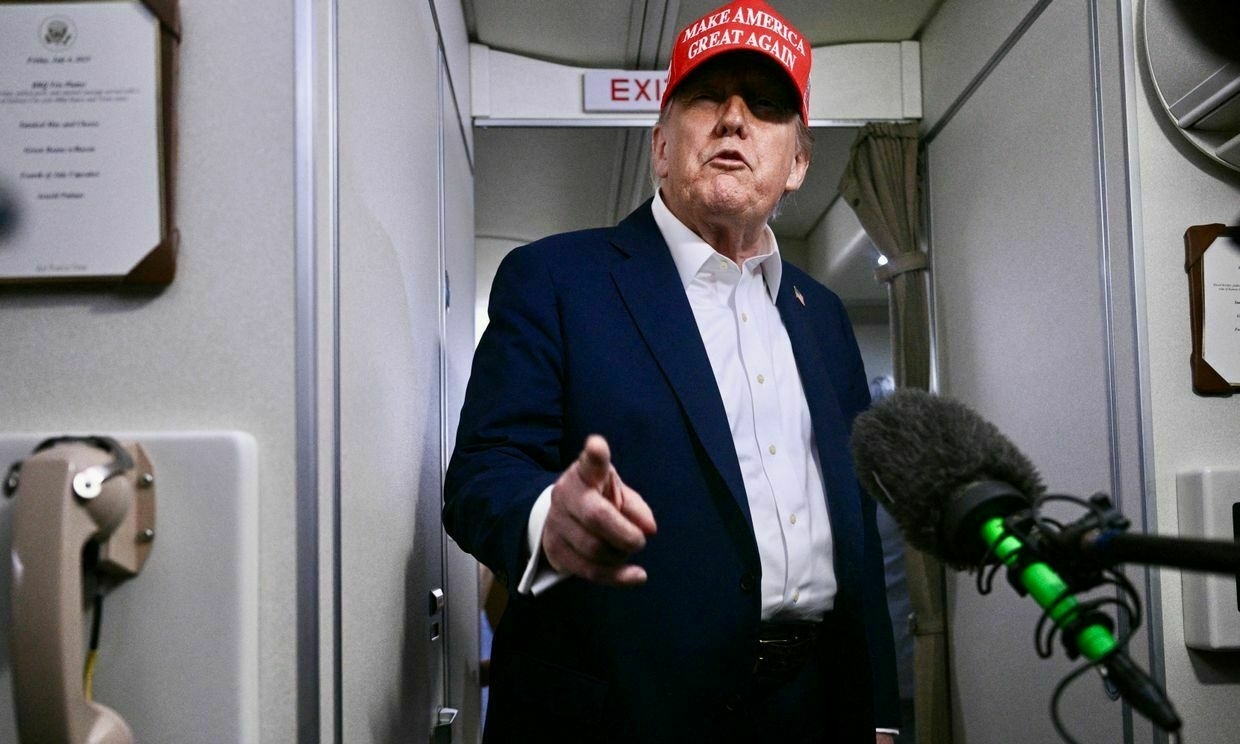
-
Rutte praises Trump in a NYT interview while warning of Russia's rising threat to NATO

Europe must dramatically ramp up its defenses against a resurgent Russia, NATO Secretary General Mark Rutte said in an interview with the New York Times published on July 5, crediting U.S. President Donald Trump for driving the alliance to unprecedented levels of commitment.
Rutte, who assumed his role late last year after 14 years as Prime Minister of the Netherlands, has been navigating NATO through a period marked by Russia’s expansionist ambitions and questions about the reliability of the United States as an ally.
“Russia is reconstituting itself at a pace and a speed which is unparalleled in recent history,” he told the outlet, adding that “…they are now producing three times as much ammunition in three months as the whole of NATO is doing in a year. This is unsustainable, but the Russians are working together with the North Koreans, with the Chinese and Iranians, the mullahs, in fighting this unprovoked war of aggression against Ukraine."
He emphasized the interconnectedness of security across different regions, noting that a secure Arctic is vital due to increased Chinese and Russian activity, and a secure Atlantic is “crucial” for the U.S. “If the Arctic, if the Atlantic Ocean, if Europe is not secure, the U.S. has a big problem,” Rutte said, arguing that Russia is ultimately aiming to attack the U.S.
The Secretary General strongly dismissed Russian Foreign Minister Sergey Lavrov’s comments that NATO’s new defense spending targets would “bankrupt” members.
“I know Sergey Lavrov very well. He has been foreign minister of Russia since the birth of Jesus Christ, and I’ve never taken him seriously. When you talk about fake news, listen to Sergey Lavrov,” Rutte told the NYT. He believes Lavrov’s comments are “clearly evidence that the deterrence is working."
Rutte acknowledged concerns about the defense industrial output across the alliance, adding that, “we simply lack the defense industrial base to produce the weapons we need to make sure that we can deter the Russians or the North Koreans or whoever to attack us.” He underscored the importance of not just financial investment, but also having sufficient personnel and industrial capacity to effectively utilize weaponry.
On the subject of Ukraine, Rutte confirmed that European allies have significantly increased their financial commitment. “The Europeans have now cobbled together $35 billion in military aid this year to deliver to Ukraine, which is more than last year,” he said. He viewed this as a logical and fair shift, with the U.S. expecting Europeans to “take more of the burden when it comes to the concrete support to Ukraine."
While acknowledging the complex discussions surrounding peace talks, Rutte recognized President Donald Trump’s role in initiating dialogue with Russian President Vladimir Putin.
“He is the one who broke the deadlock with Putin. When he became president in January, he started these discussions with Putin, and he was the only one who was able to do this. This had to happen. A direct dialogue between the American president and the president of the Russian Federation.”
However, Rutte admitted that subsequent peace talks in Istanbul involved Russia sending a less serious delegation, leading to the conclusion that “we are not there yet, and that means that in the meantime you have to make sure that Ukraine has what it needs to stay in the fight."
Despite some perceived divergences in approach between NATO and the U.S. regarding peace talks, Rutte insisted on the American administration’s commitment to the conflict’s importance.
“The American administration completely takes the view and shares it with the Europeans that this war in Ukraine is crucial for the defense of NATO territory going forward and that we have to make sure that Ukraine is in the strongest possible position to stop the Russians from taking more territory, and that when it comes to a cease-fire or, even better, a peace deal, that Ukraine with some help will be able to prevent Putin from ever attacking Ukraine again in the future."
Trump says Putin ‘wants to keep killing people,’ signals US may send Patriots to Ukraine“It just seems like he wants to go all the way and just keep killing people. It’s not good,” U.S. President Donald Trump said. The Kyiv IndependentTim Zadorozhnyy
The Kyiv IndependentTim Zadorozhnyy
-
Kremlin's war economy shows cracks as military spending boom fades

Russia’s economy, which defied initial sanctions and saw growth propelled by massive military spending and robust oil exports, is now showing significant signs of a downturn.
Recent economic indicators are flashing red, with manufacturing activity declining, consumer spending tightening, and inflation remaining stubbornly high, straining the national budget, the Wall Street Journal (WSJ) reported on July 4.
Russian officials are openly acknowledging the risks of a recession. Economy Minister Maxim Reshetnikov warned last month that Russia was on the “verge of a recession,” while Finance Minister Anton Siluanov described the situation as a “perfect storm.” Companies, from agricultural machinery producers to furniture makers, are reducing output. The central bank announced on July 3 it would debate cutting its benchmark interest rate later this month, following a reduction in June.
While analysts suggest this economic sputtering is unlikely to immediately alter President Vladimir Putin’s war objectives—as his focus on “neutering Ukraine” overrides broader economic concerns—it exposes the limits of his war economy.
The slowdown indicates that Western sanctions, though not a knockout blow, are increasingly taking a toll. If sanctions intensify further or global oil prices fall, Russia’s economy could face more severe instability. This downturn undermines Putin’s strategic bet that Russia can financially outlast Ukraine and its Western allies, suggesting Moscow may struggle to finance the war indefinitely.
Death of top Russian oil executive fuels fresh scrutiny of elite’s ‘window falls’The unexplained death of a top Russian oil executive on July 4 is fueling renewed scrutiny over the rising number of high-profile Russian officials and businessmen who have died under mysterious circumstances, specifically, have fallen out of windows. Andrei Badalov, vice president of Transneft, Russia’s largest state-controlled pipeline transport company,The Kyiv IndependentTim Zadorozhnyy

Experts warn that Russia’s economic growth model, overly reliant on military spending, is unsustainable and necessitates a contraction of civilian economic capacities to free up workers for the war machine, which is not a viable long-term strategy. Putin recently dismissed suggestions that the war is stifling the economy, echoing Mark Twain by stating reports of its death “are greatly exaggerated.” However, he also cautioned that a recession or stagflation “should not be allowed under any circumstances."
After a brief recession in 2022, military spending, which accounts for over 6% of gross domestic product this year (the highest since Soviet times) and approximately 40% of total government spending, had propped up Russia’s economy and blunted the impact of Western sanctions. Russia’s ability to reroute oil exports to China and Beijing’s support with electronics and machinery provided additional economic stimulus. This created an economic paradox: the most sanctioned major economy was, for a period, growing faster than many advanced economies.
However, this military spending “sugar rush” fueled runaway inflation, compelling the central bank to raise interest rates to a record 21% to try and tame it. Higher interest rates increased borrowing costs for businesses, curbing investment, expansion plans, and squeezing profits. The economic comedown has already begun.
Official data shows Russian GDP growth slowed to 1.4% in the first quarter compared to a year earlier, down significantly from 4.5% in the fourth quarter of 2024. S&P Global’s purchasing managers’ index indicated Russia’s manufacturing sector contracted at its sharpest rate in over three years in June, and new car sales dropped nearly 30% year-over-year in June.
Businesses across Russia are feeling the effects, according to the WSJ. Rostselmash, the country’s largest producer of agricultural machinery, announced in May it would cut production and investment, and pull forward mandatory annual leave for its 15,000 employees due to a lack of demand. In Siberia, electricity grid operator Rosseti Sibir stated it was on the verge of bankruptcy due to high debt, halting investments and proposing tariff hikes for industrial users.
While some analysts argue the Russian banking system remains stable, others warn of increasing instability. A recent report by the Washington, D.C.-based Center for Strategic and International Studies (CSIS) highlighted risks from a government decision to control war-related lending at major Russian banks. The state could direct banks to offer preferential loans, potentially forcing the government to absorb losses if high interest rates prevent companies from meeting obligations.
The Moscow-based Center for Macroeconomic Analysis and Short-Term Forecasting also assessed in May that the risk of a protracted systemic banking crisis in 2026 was “moderate” and growing.
These economic challenges intensify pressure on the Kremlin by reducing its financial capacity to fund its war in Ukraine. The government has operated with a budget deficit throughout the war and projects this will continue for at least two more years. This fiscal strain could provide an opening for Western nations to implement more powerful sanctions.
Falling oil prices present another significant risk for Russia, as energy sales account for about a third of its budget revenues. The price of Russian crude has consistently remained below the level assumed in this year’s budget, and Russia’s oil-and-gas revenue in June fell to its lowest level since January 2023, according to Finance Ministry data.
Trump says Putin ‘wants to keep killing people,’ signals US may send Patriots to Ukraine“It just seems like he wants to go all the way and just keep killing people. It’s not good,” U.S. President Donald Trump said. The Kyiv IndependentTim Zadorozhnyy
The Kyiv IndependentTim Zadorozhnyy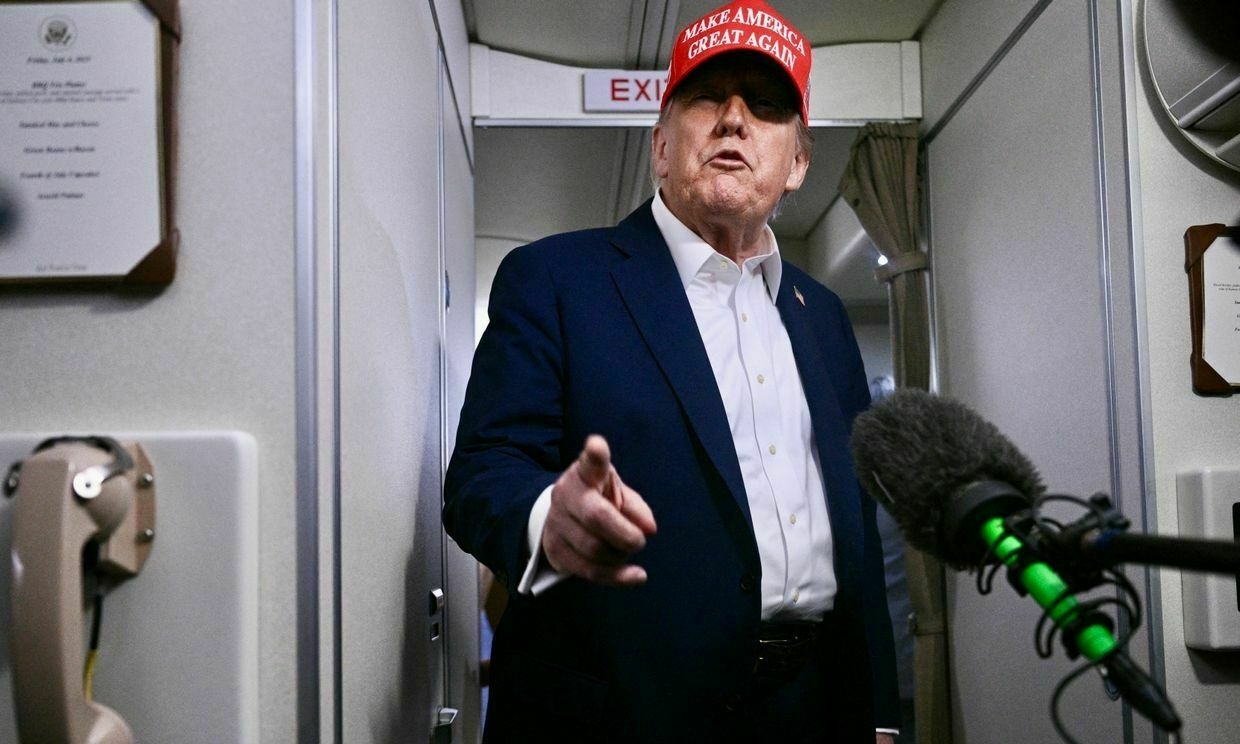
-
Zelensky describes phone call with Trump as 'best conversation in all this time'
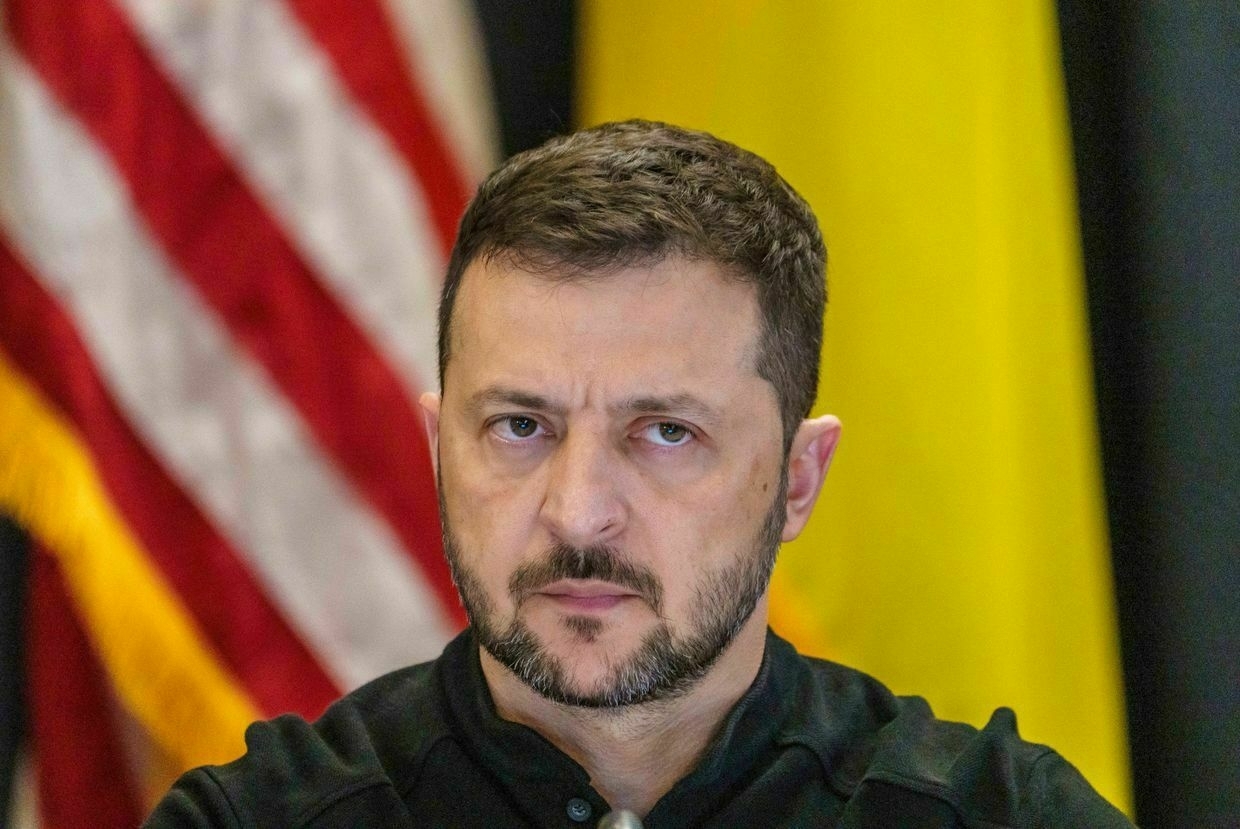
President Volodymyr Zelensky described his recent phone call with U.S. President Donald Trump as “the best conversation in all this time” in an evening address on July 5.
“Patriot (missiles) are key to protection from ballistic (missiles). We discussed several other important issues that our teams will work out in detail at meetings in the near future,” Zelensky said.
The two leaders spoke on July 4, agreeing to strengthen Ukraine’s air defenses amid intensified Russian strikes, Zelensky said earlier.
A day prior to speaking with Zelensky, Trump held a phone call with Russian President Vladimir Putin in an effort to discuss ending Russia’s war against Ukraine.
“This was probably the best conversation in all this time, it was maximally productive. We discussed the topic of air defenses. I am grateful for the readiness to help,” Zelensky said, describing his phone call with Trump.
Relations between Ukraine and the U.S. have previously been strained as the White House pushed Kyiv to sign a lucrative bilateral minerals deal and tried to broker a peace deal with Moscow that did not rule out major concessions for Ukraine.
Zelensky’s phone call with the U.S. leader followed media reports and announcements from Washington of a pause in military assistance to Ukraine. Trump, on July 3, denied that Washington has stopped supplying weapons to Kyiv.
Trump described his July 3 conversation with Putin as disappointing, saying that the call “didn’t make any progress” in stopping Russia’s war against Ukraine.
“I’m very disappointed with the conversation I had today with President Putin,” Trump told journalists. “Because I don’t think he’s there. And I’m very disappointed. I don’t think he’s looking to stop this fighting."
Russia launches another horrific attack on Kyiv hours after Trump-Putin callRipe cherries and apricots fill the stalls of fruit vendors, while people bustle about on a scorching July Friday. Yet just a five-minute walk from the stand, the scene shifts dramatically: a gaping hole mars the five-story residential building where the stairwell once stood. Rescuers tirelessly sift through theThe Kyiv IndependentKateryna Hodunova
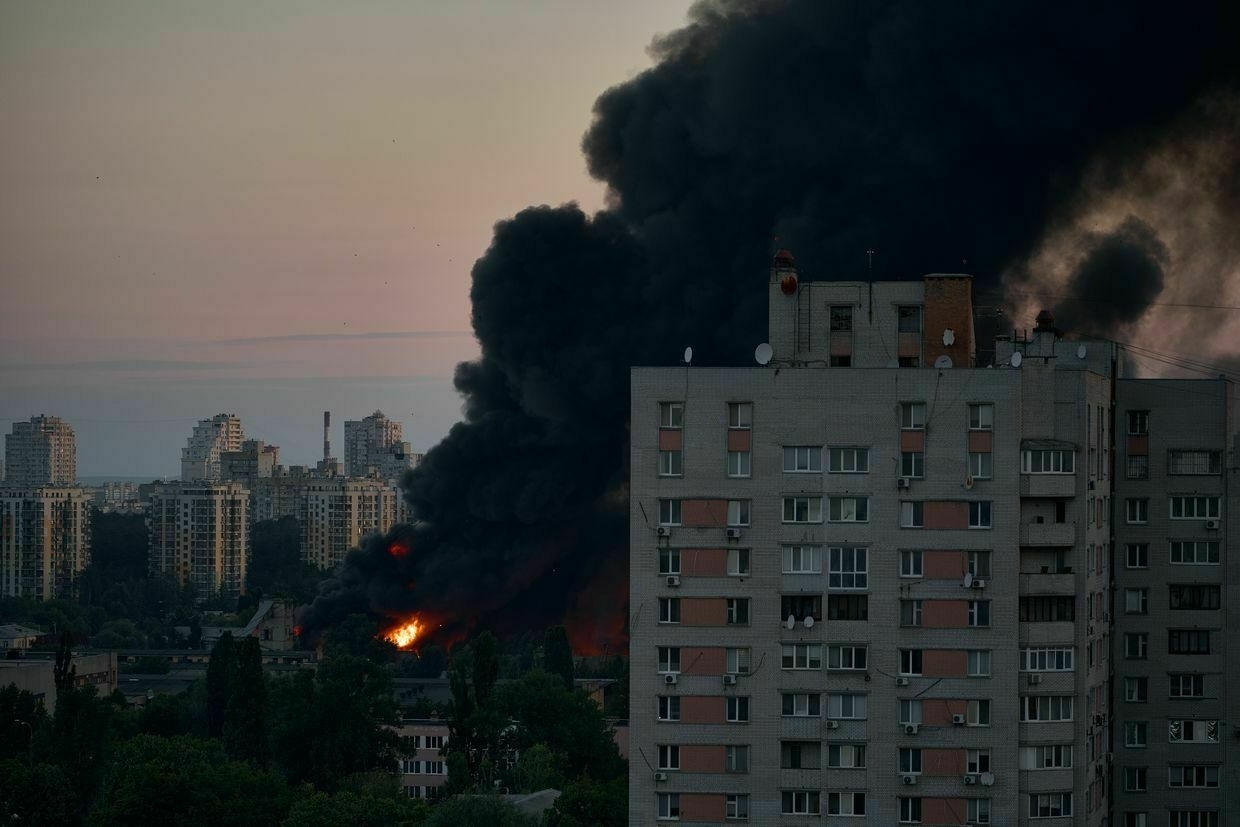
-
Ukraine attacks, the US stops air defense: what will Trump decide? | Weekly Wrap-Up
-
BlackRock halted Ukraine recovery fund following Trump victory, France working on replacement, Bloomberg reports
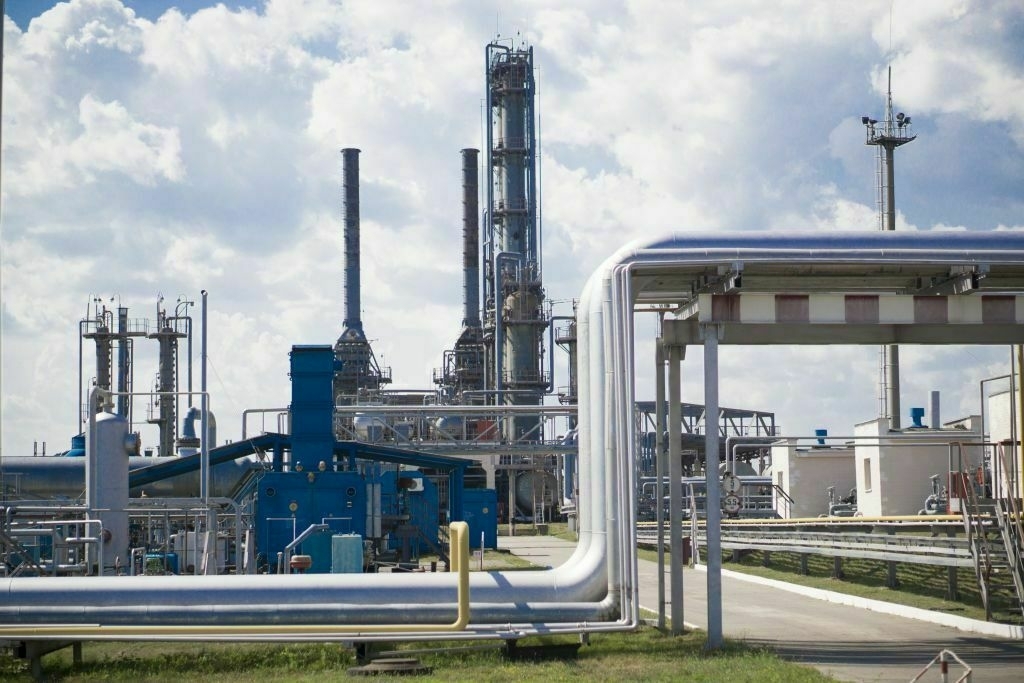
BlackRock, a U.S. investment firm, suspended work on a multibillion-dollar Ukraine recovery fund following U.S. President Donald Trump’s election victory, prompting France to work on a replacement, Bloomberg reported on July 5.
The plan nearly secured the initial support of institutions backed by the governments of Germany, Italy, and Poland, people familiar with the matter told Bloomberg.
Kyiv has sought to secure investment in Ukraine’s reconstruction as Russia’s war continues to destroy infrastructure across the country.
BlackRock halted its search for institutional investors in January, causing the planned funding that sought to secure $500 million from governments, development grants, and investment banks, and another $2 billion from private investors, to fall through.
The investment firm halted talks with institutional investors in January due to a lack of interest amid perceived uncertainty in Ukraine.
The fund was set to be unveiled by BlackRock at the upcoming Ukraine Recovery Conference on July 10-11 in Rome, Bloomberg reported.
A spokesperson for BlackRock said the investment firm completed advisory work for the recovery fund pro bono in 2024 and no longer has “any active mandate."
France is working on a proposal to replace the recovery fund led by BlackRock, people familiar with the matter told Bloomberg, adding that it remains uncertain how effective the plan will be without Washington’s backing.
President Volodymyr Zelensky and Italian Prime Minister Giorgia Meloni are expected to attend the Ukraine Recovery Conference next week.
Despite a partial rebound from a 30% economic slump in 2022, foreign investment in Ukraine remains underwhelming.
As US aid to Ukraine dries up, new platform connects Americans investors with Ukrainian startupsUkraine’s startup ecosystem has tripled in five years, even during Russia’s full-scale invasion, to become the second most valuable in Central and Eastern Europe at $28 billion.The Kyiv IndependentDominic Culverwell
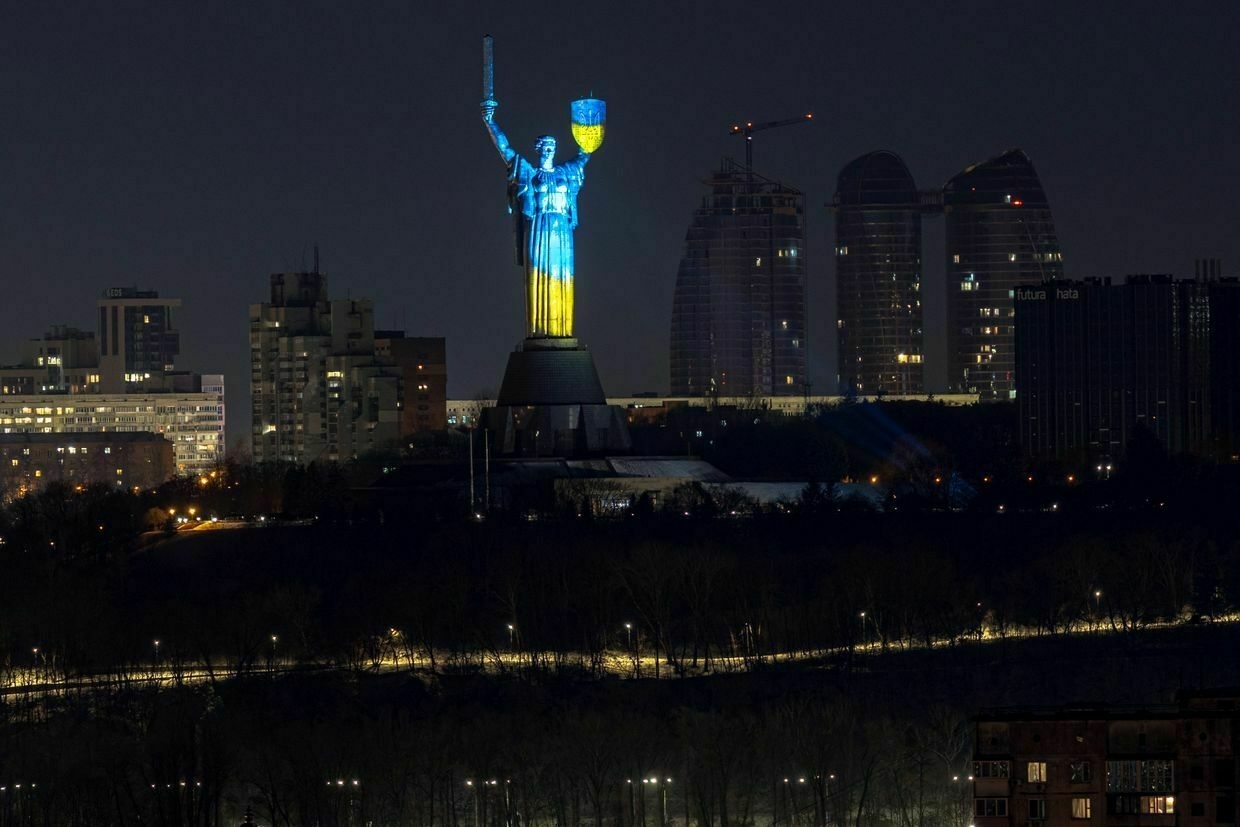
-
4 killed, 37 injured in Russian attacks on Ukraine over past day
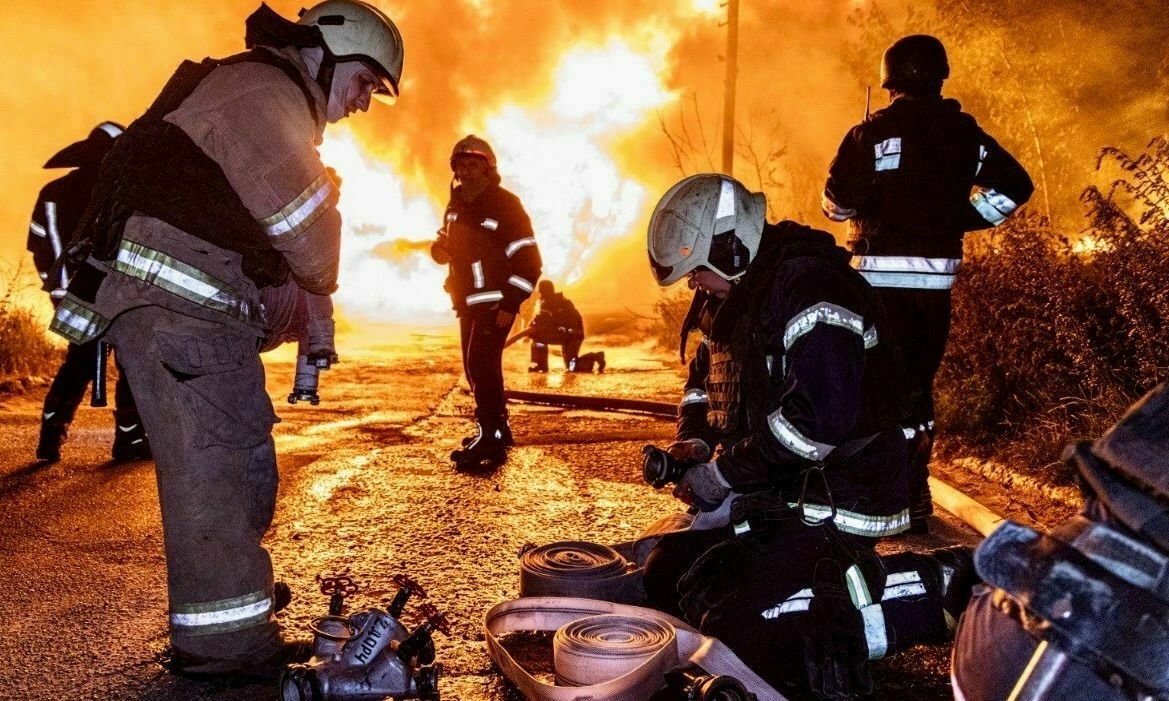
At least four civilians were killed and 37 others injured in Russian attacks across Ukraine over the past 24 hours, regional authorities reported on July 5.
Russia launched 322 drones overnight, including Iranian-designed Shahed-type attack drones, according to Ukraine’s Air Force. Air defenses intercepted 292 drones, while another 135 dropped off radars, likely used as decoys to overwhelm Ukrainian systems.
The attack was repelled using aviation, electronic warfare, mobile fire teams, and air defense systems.
In Donetsk Oblast, Russian strikes killed two civilians and injured four more, Governor Vadym Filashkin said. In Kharkiv Oblast, one person was killed and 15 injured, including two children, according to Governor Oleh Syniehubov.
In Kherson Oblast, 11 civilians were injured as Russian forces targeted residential areas and other civilian infrastructure, Governor Oleksandr Prokudin reported.
A 49-year-old postal worker was injured in Chernihiv Oblast by a first-person-view (FPV) drone, Governor Viacheslav Chaus said. The man sustained shrapnel wounds while delivering mail.
In Dnipropetrovsk Oblast, four civilians, two men and two women, were injured in Russian strikes, Governor Serhii Lysak reported.
In Zaporizhzhia Oblast, an 84-year-old man was killed, and two others — a 54-year-old man and a 10-year-old boy — were injured, Governor Ivan Fedorov said.
The latest strikes come as Russia continues to escalate its aerial campaign and reject calls for a ceasefire. Ukrainian officials have repeatedly urged Western partners to bolster Ukraine’s air defense capabilities amid persistent drone and missile strikes.
Trump says Putin ‘wants to keep killing people,’ signals US may send Patriots to Ukraine“It just seems like he wants to go all the way and just keep killing people. It’s not good,” U.S. President Donald Trump said. The Kyiv IndependentTim Zadorozhnyy
The Kyiv IndependentTim Zadorozhnyy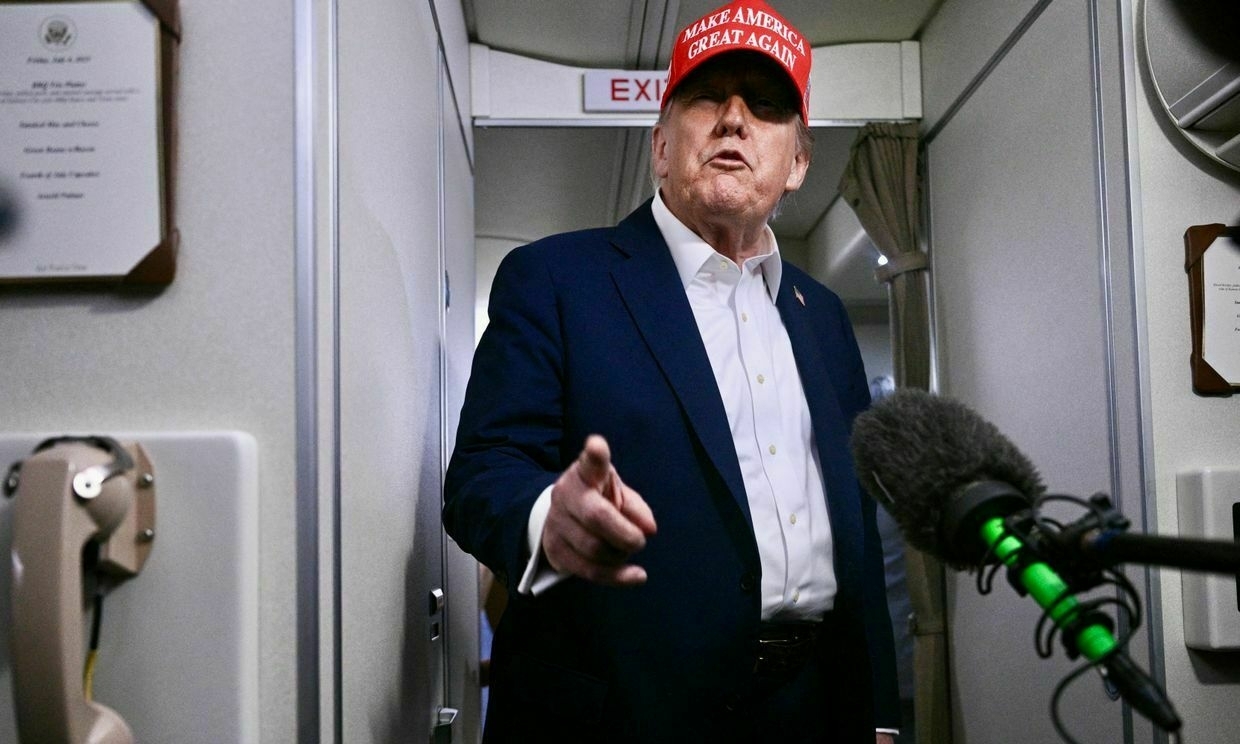
-
Trump says Putin 'wants to keep killing people,' signals US may send Patriots to Ukraine
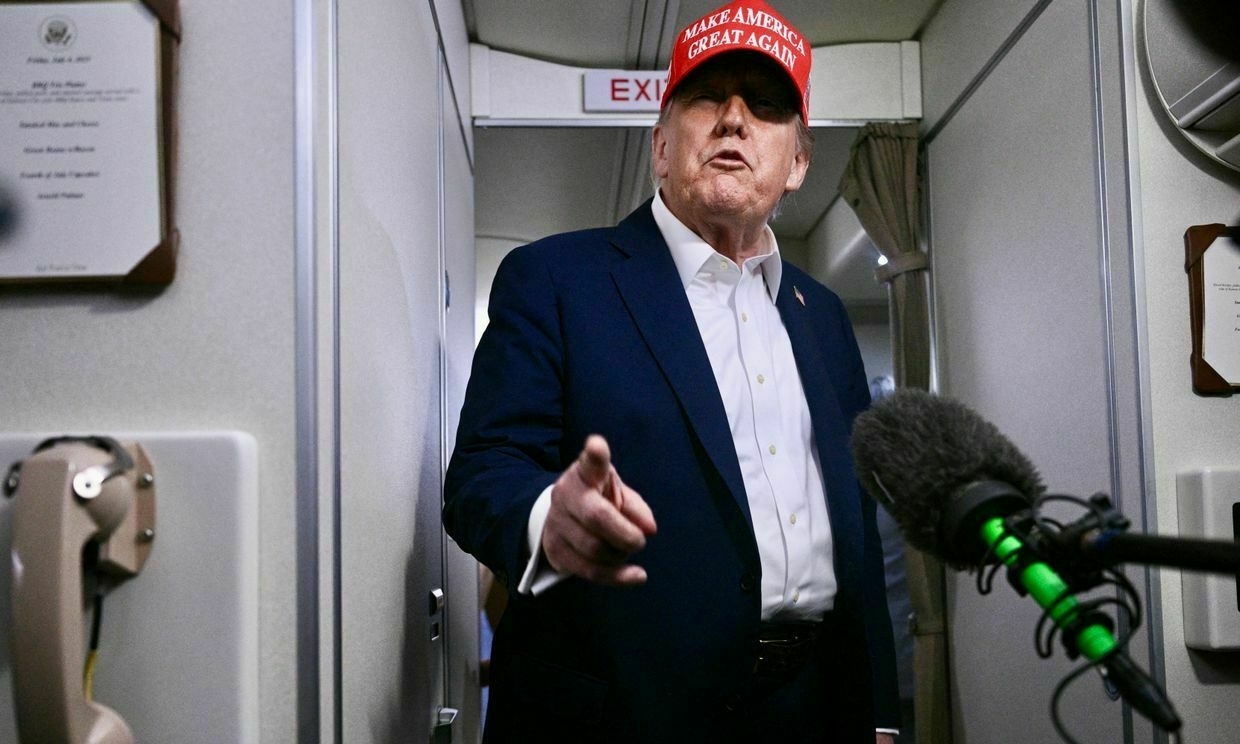
U.S. President Donald Trump said on July 5 that Russian President Vladimir Putin does not appear interested in ending the war in Ukraine, according to a comment made onboard Air Force One.
Trump reiterated that he was “very unhappy” with the July 3 phone call between the two leaders.
“It just seems like he wants to go all the way and just keep killing people. It’s not good. I wasn’t happy with it,” Trump told reporters.
The call, which lasted about an hour, was confirmed by the Kremlin to have focused on Ukraine. Putin reportedly told Trump that Russia would continue pursuing its “goals” in the war.
Trump’s remarks follow a sharp escalation in Russian missile and drone attacks across Ukraine that have killed and injured hundreds of civilians in recent weeks.
The strikes have hit multiple regions, destroying civilian infrastructure amid persistent calls from Ukraine, the U.S., and Europe for an unconditional ceasefire.
The day after his call with Putin, the U.S. president spoke by phone with President Volodymyr Zelensky and said the two had a “very strategic” conversation.
“We talked about different things… I think it was a very, very strategic call,” Trump said. When asked about supplying Patriot air defense systems to Ukraine, he replied, “Yeah, we might."
“They’re going to need something because they’re being hit pretty hard,” Trump added.
The statement comes as the U.S. Defense Department has paused deliveries of several key weapons systems, including Patriot missiles and precision-guided munitions, prompting concern in Kyiv.
While Trump has said he wants to help Ukraine, his administration has not imposed new sanctions on Russia since taking office and has not approved additional aid packages.
The U.S. president has instead directed strikes against Iran, targeting three nuclear facilities in June in response to regional escalations, a move critics say contrasts with his cautious approach toward Moscow.
When asked why he appears tougher on Tehran than Moscow, Trump told reporters, “No, I think I’m tougher on Russia than I am on Iran."
Despite two rounds of face-to-face talks between Moscow and Kyiv in May and June in Istanbul, no agreement on a ceasefire has been reached. The negotiations have only resulted in prisoner exchanges, as Moscow continues to push for maximalist demands in peace talks.
